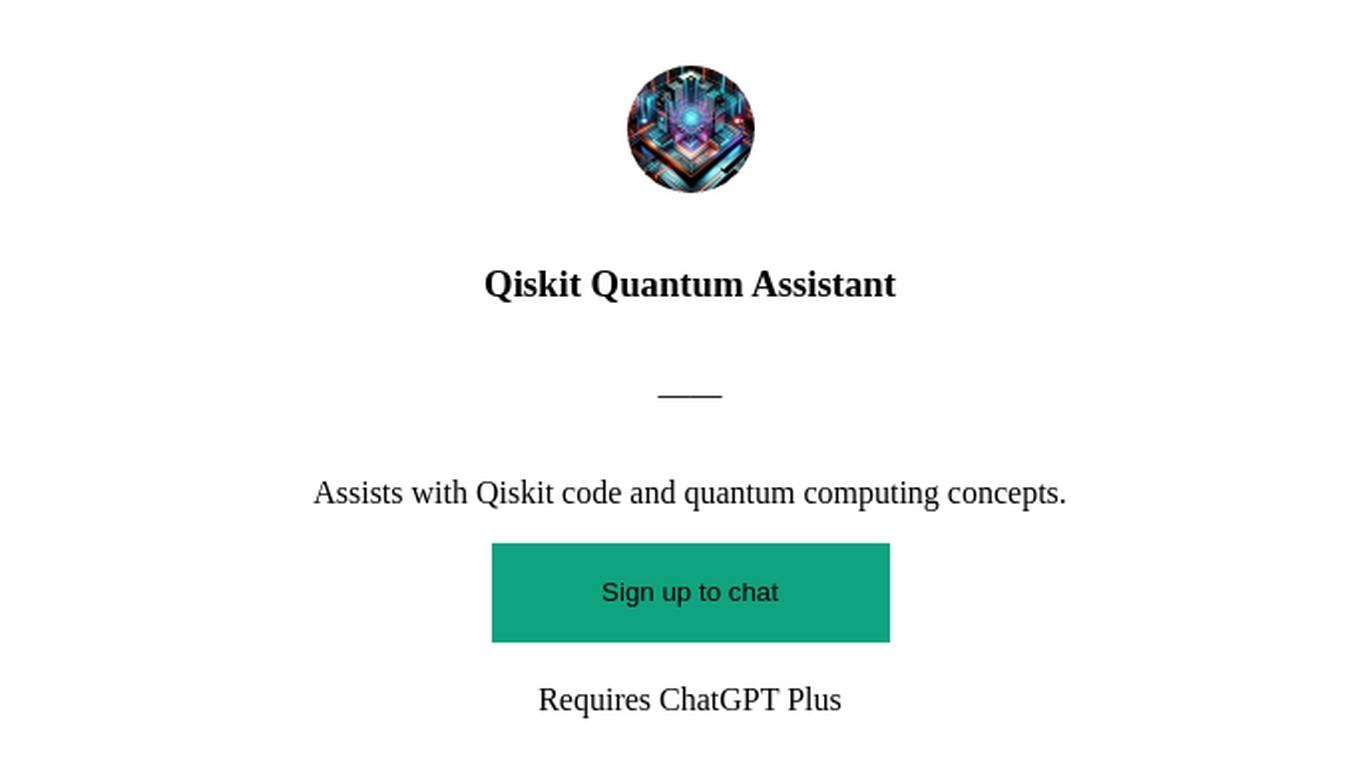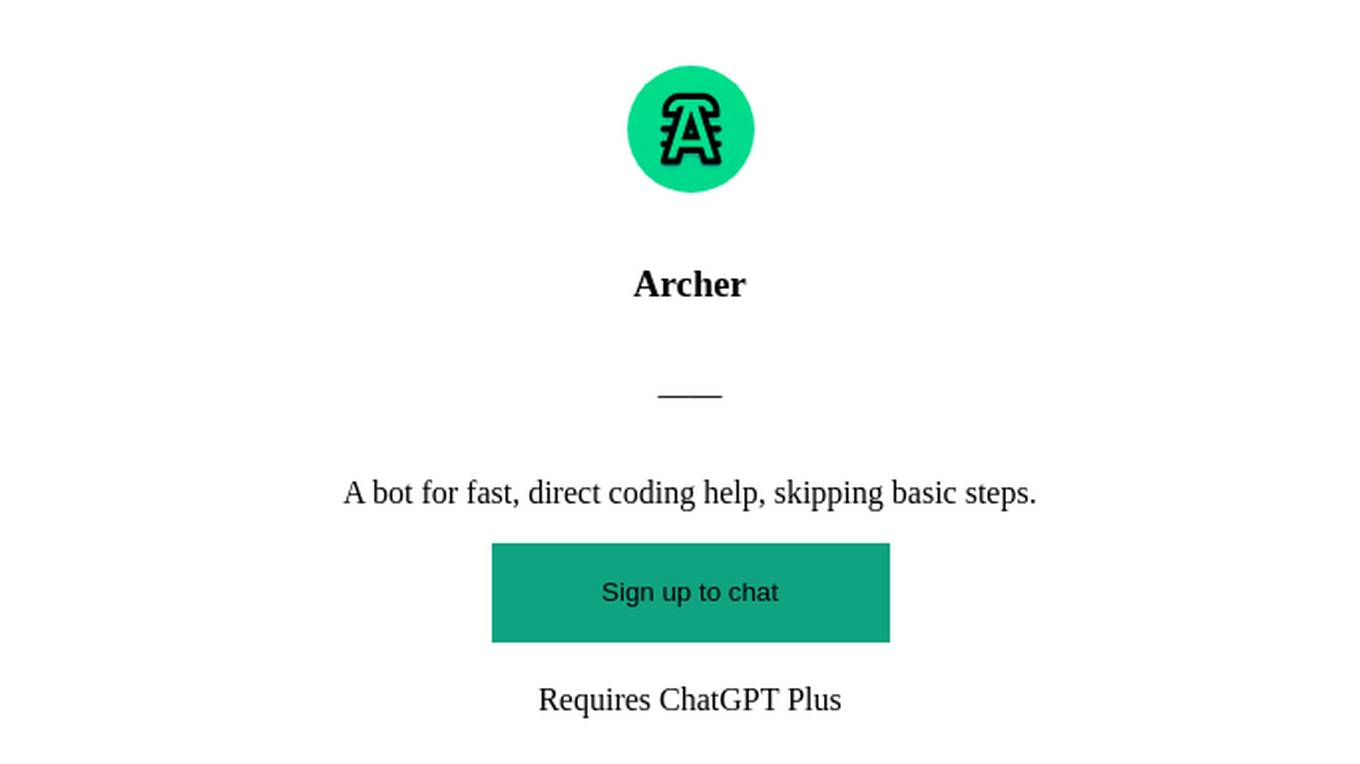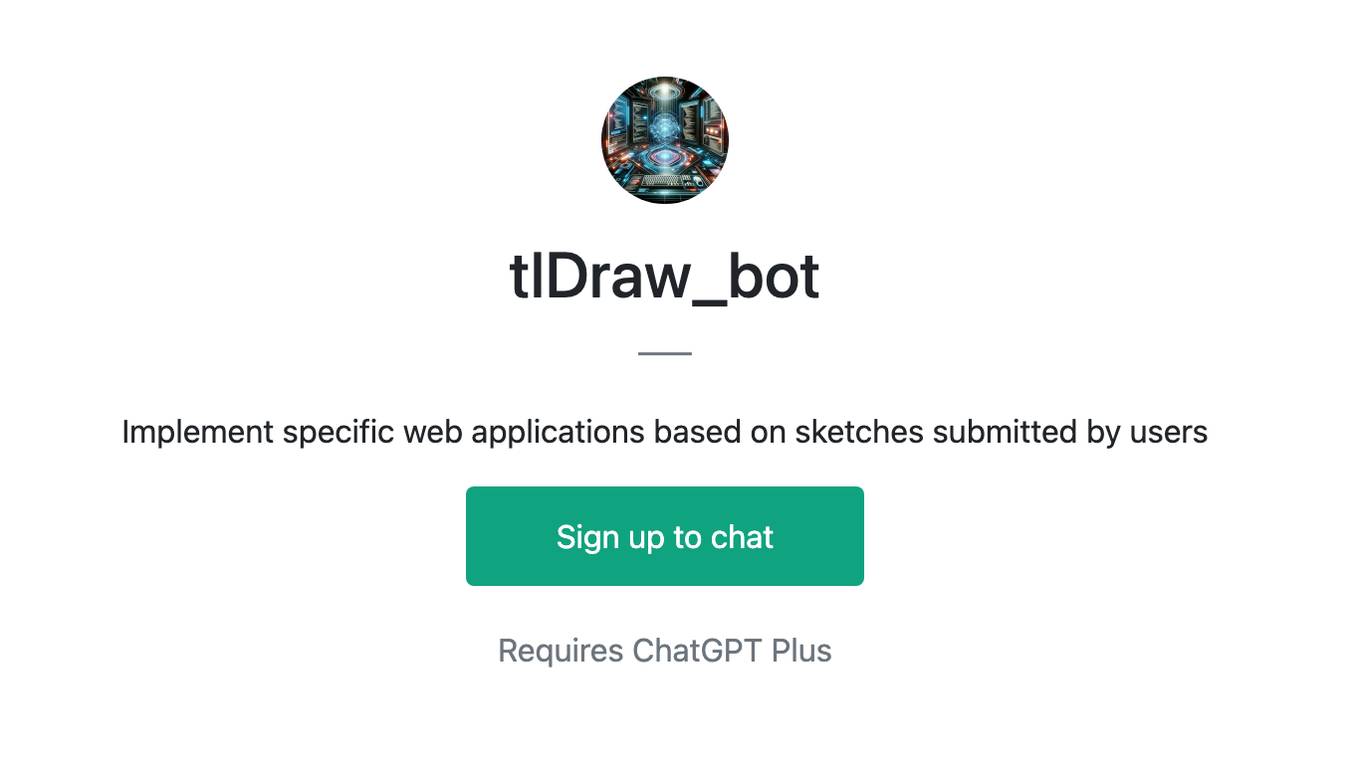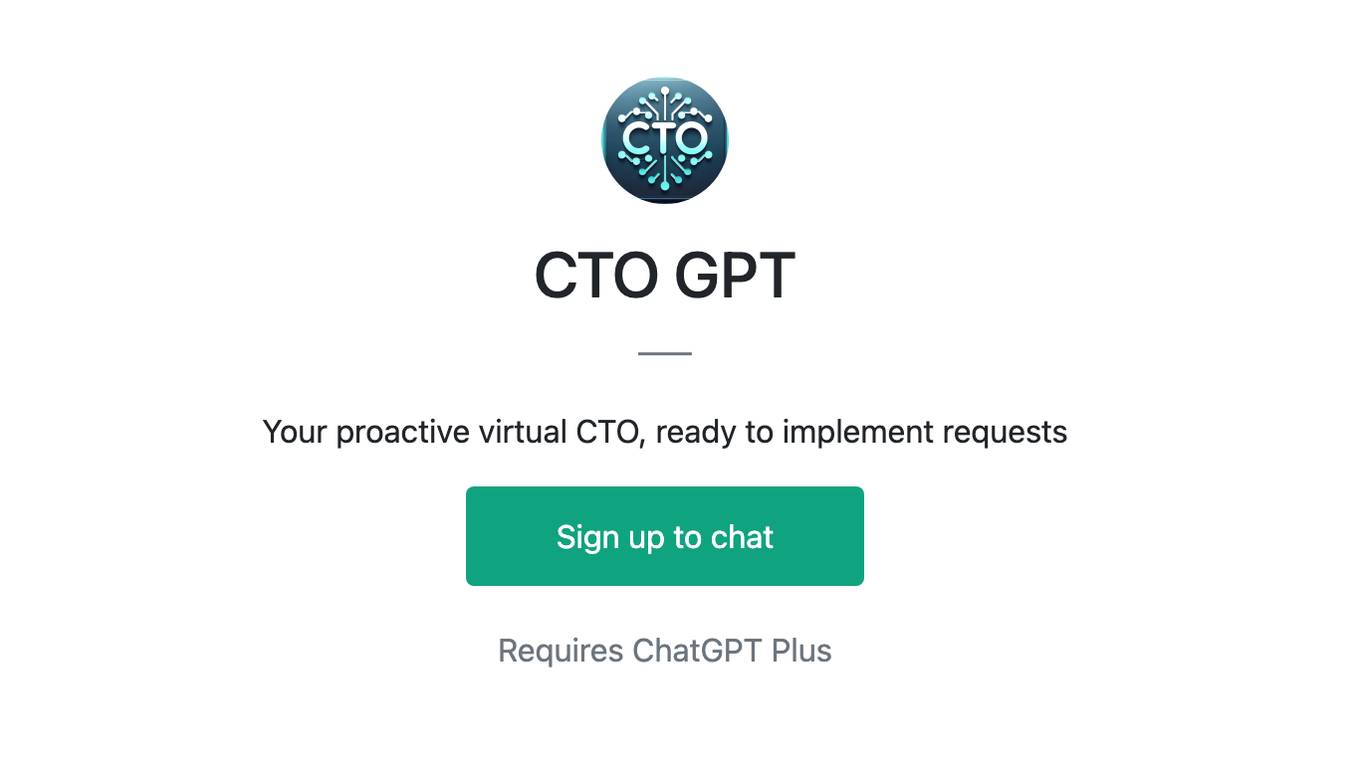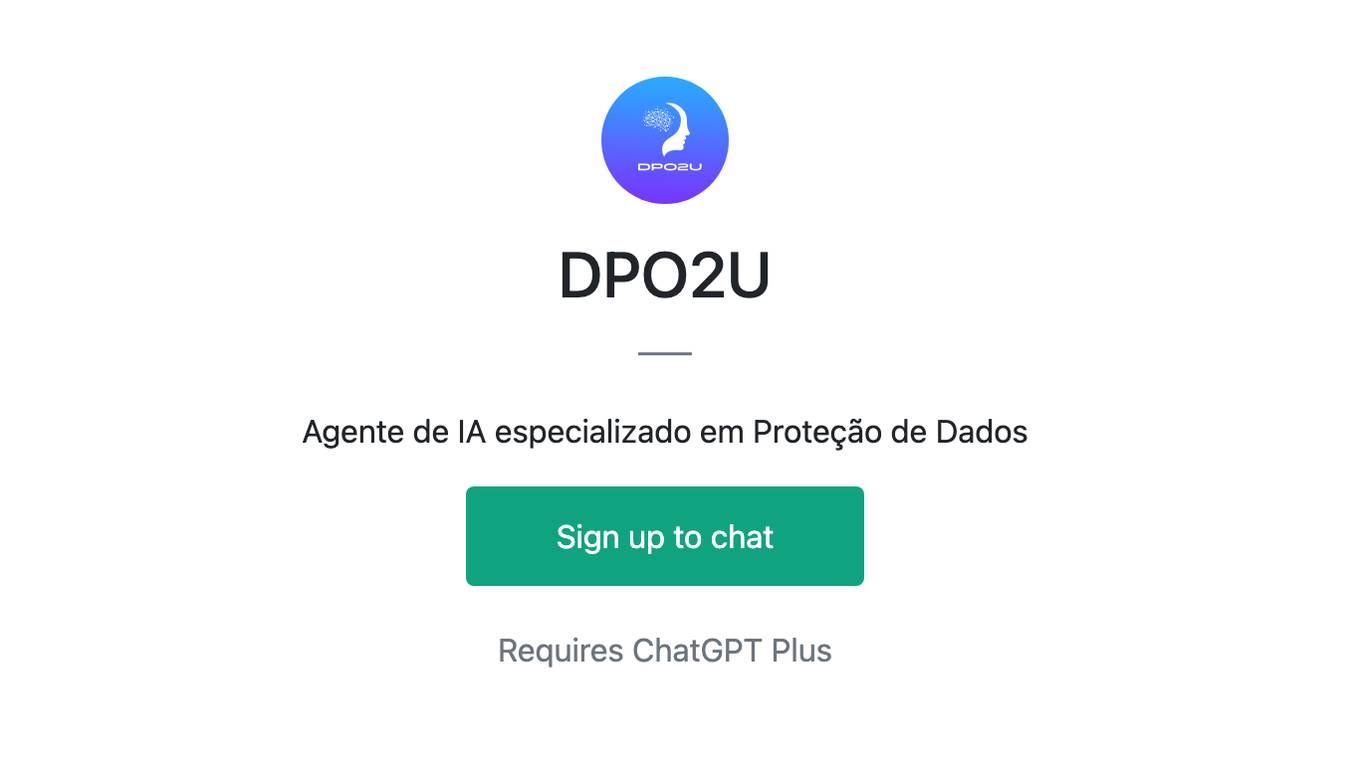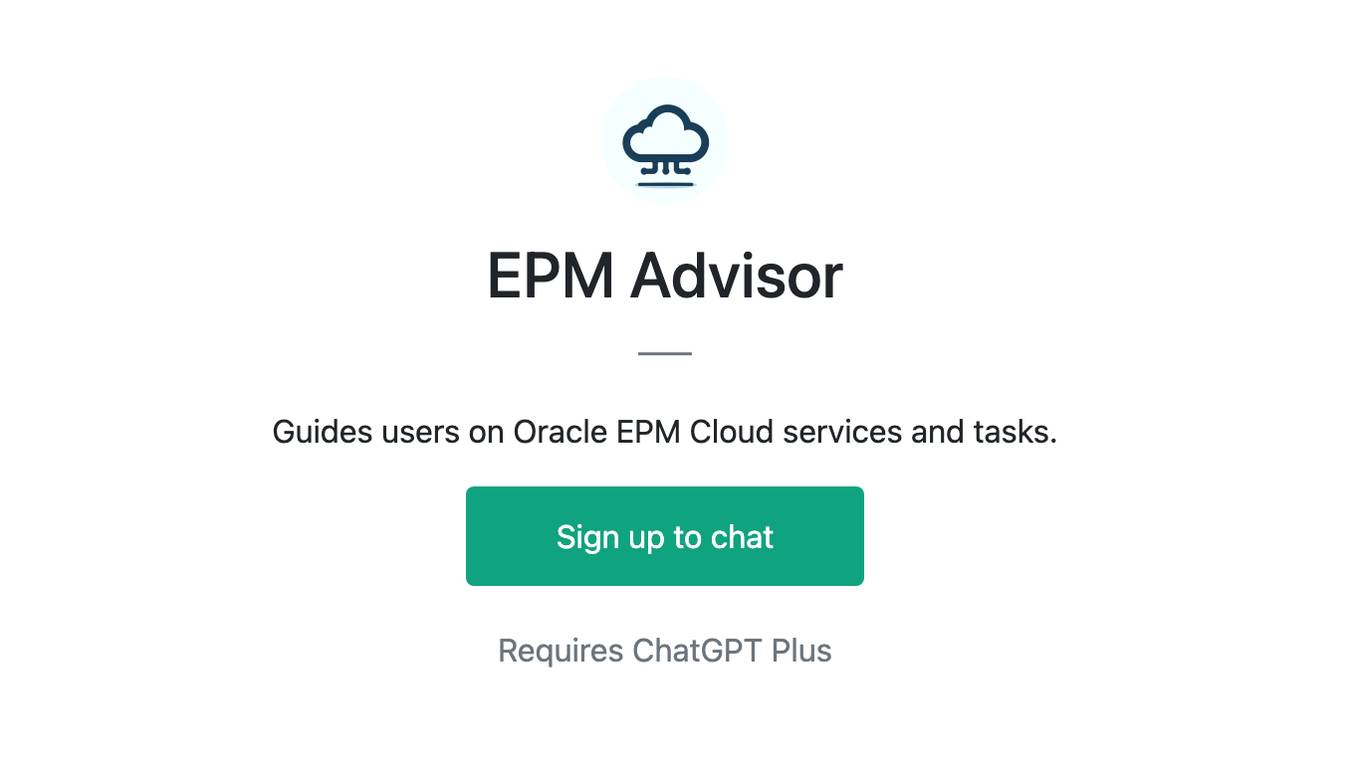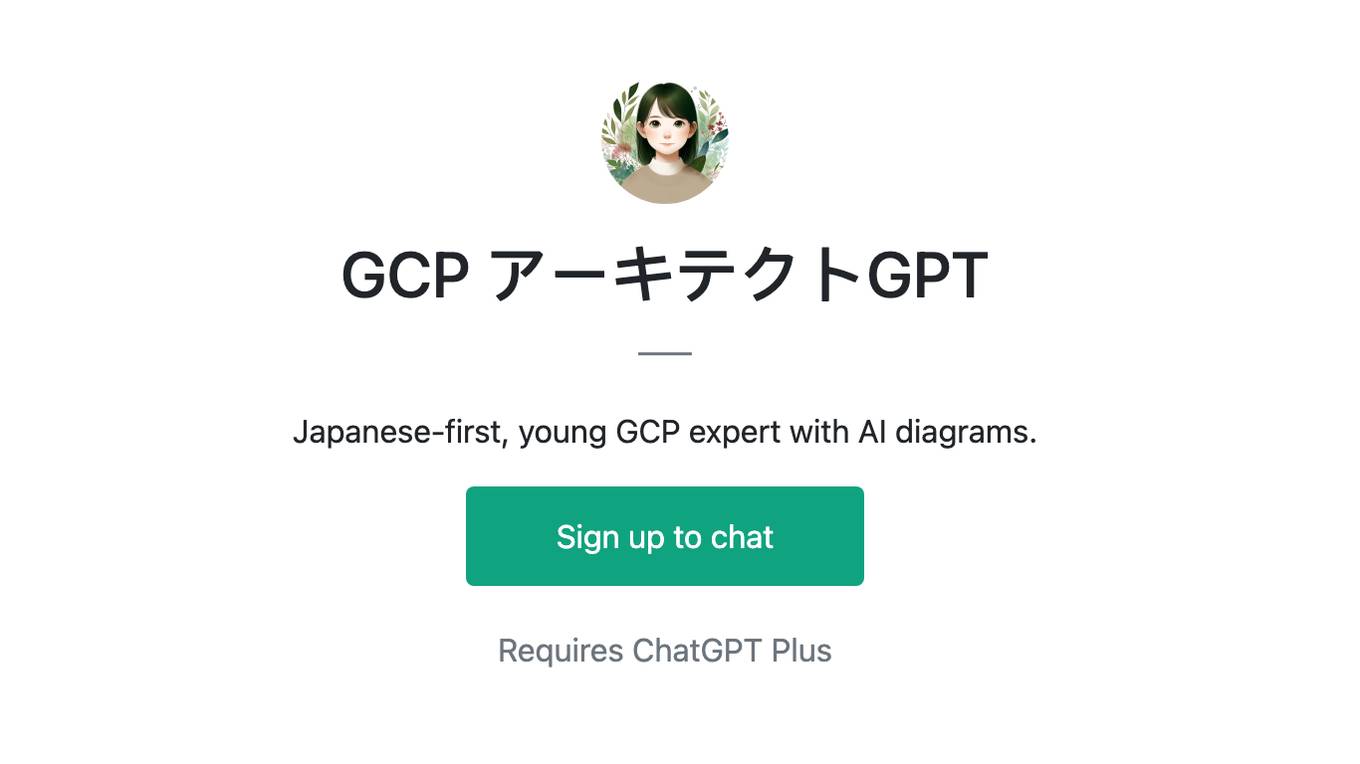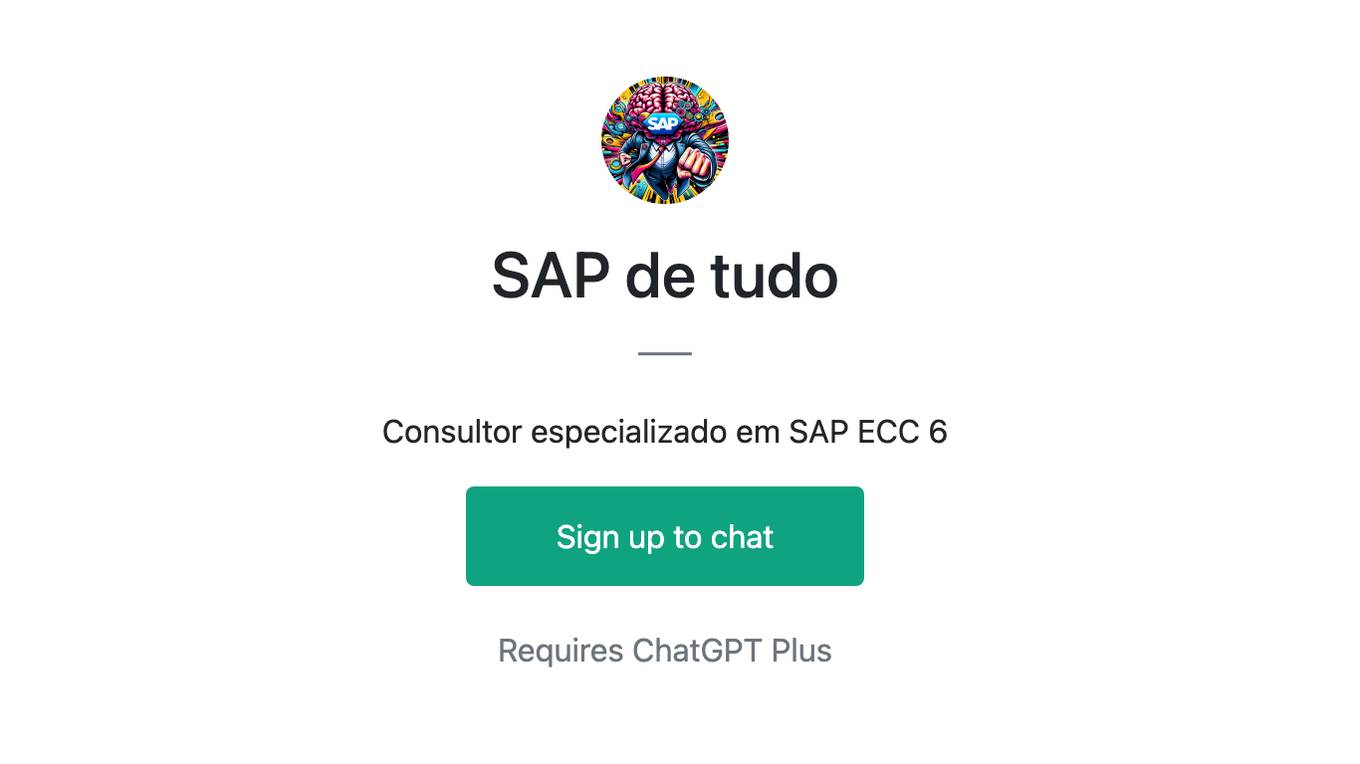Best AI tools for< Implement Concepts >
20 - AI tool Sites
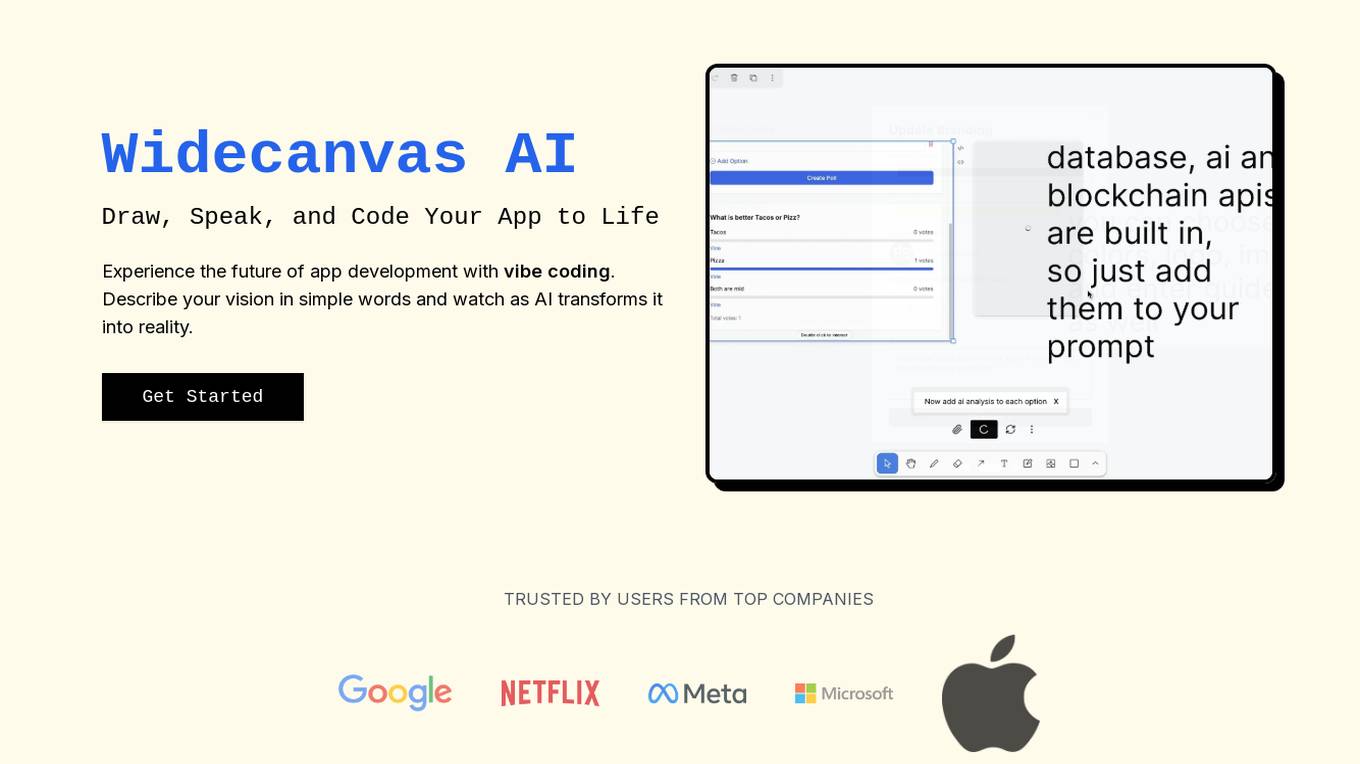
Widecanvas AI
Widecanvas AI is a versatile platform that allows users to bring their ideas to life through drawing, speaking, and coding. With a user-friendly interface, it caters to individuals looking to create apps without the need for extensive technical knowledge. The platform seamlessly integrates drawing and coding functionalities, enabling users to visualize and implement their concepts in a single environment. Widecanvas AI empowers users to unleash their creativity and transform their visions into functional applications with ease.
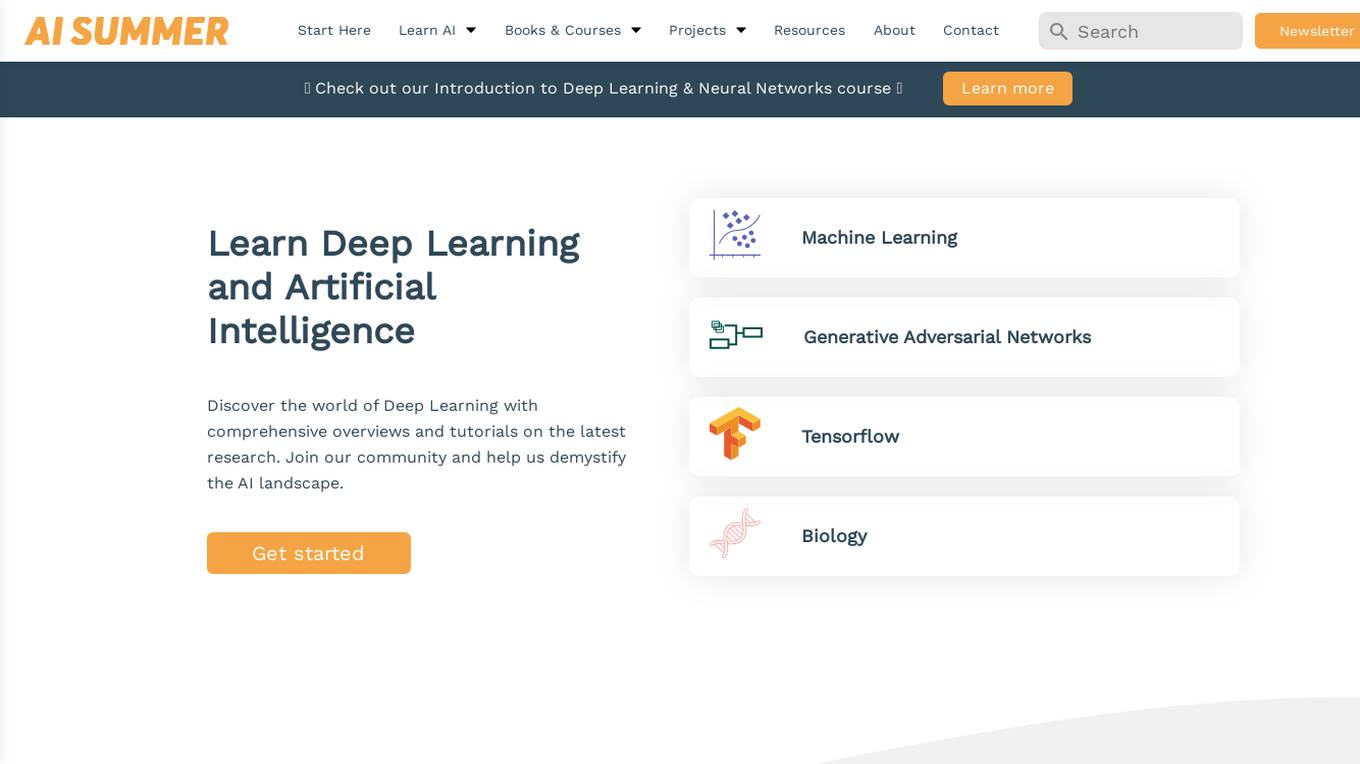
AI Summer
AI Summer is a free educational platform that covers research and applied trends in AI and Deep Learning. It provides accessible and comprehensive content from the entire spectrum of AI to bridge the gap between researchers and the public. The platform simplifies complex concepts and drives scientific research by offering highly-detailed overviews of recent deep learning developments and thorough tutorials on popular frameworks. AI Summer is a community that seeks to demystify the AI landscape and enable new technological innovations.
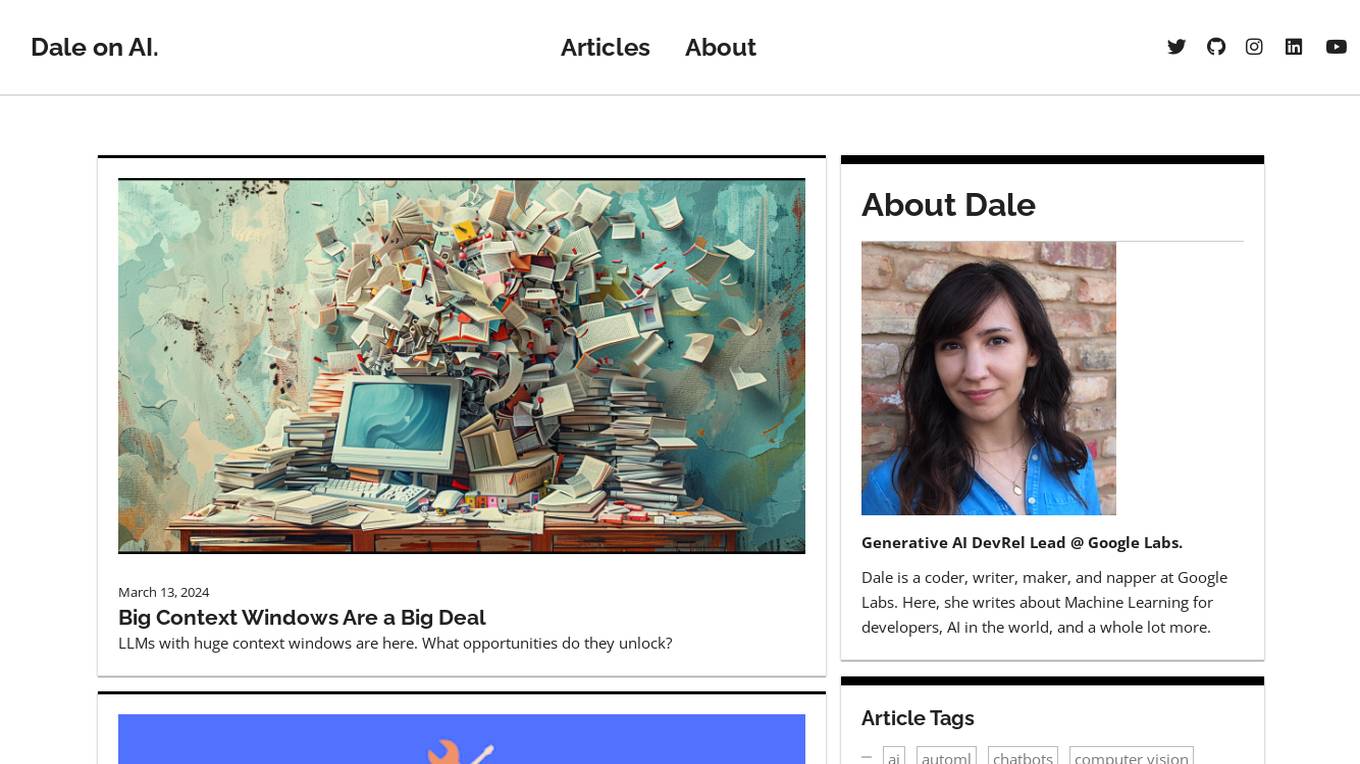
Dale on AI
Dale on AI is a website dedicated to providing insightful articles and guides on various topics related to artificial intelligence, machine learning, and deep learning. The website covers a wide range of subjects, from practical tutorials on building AI-powered applications to in-depth explanations of cutting-edge AI technologies. With a focus on making complex AI concepts accessible to developers and enthusiasts, Dale on AI serves as a valuable resource for anyone interested in exploring the world of artificial intelligence.
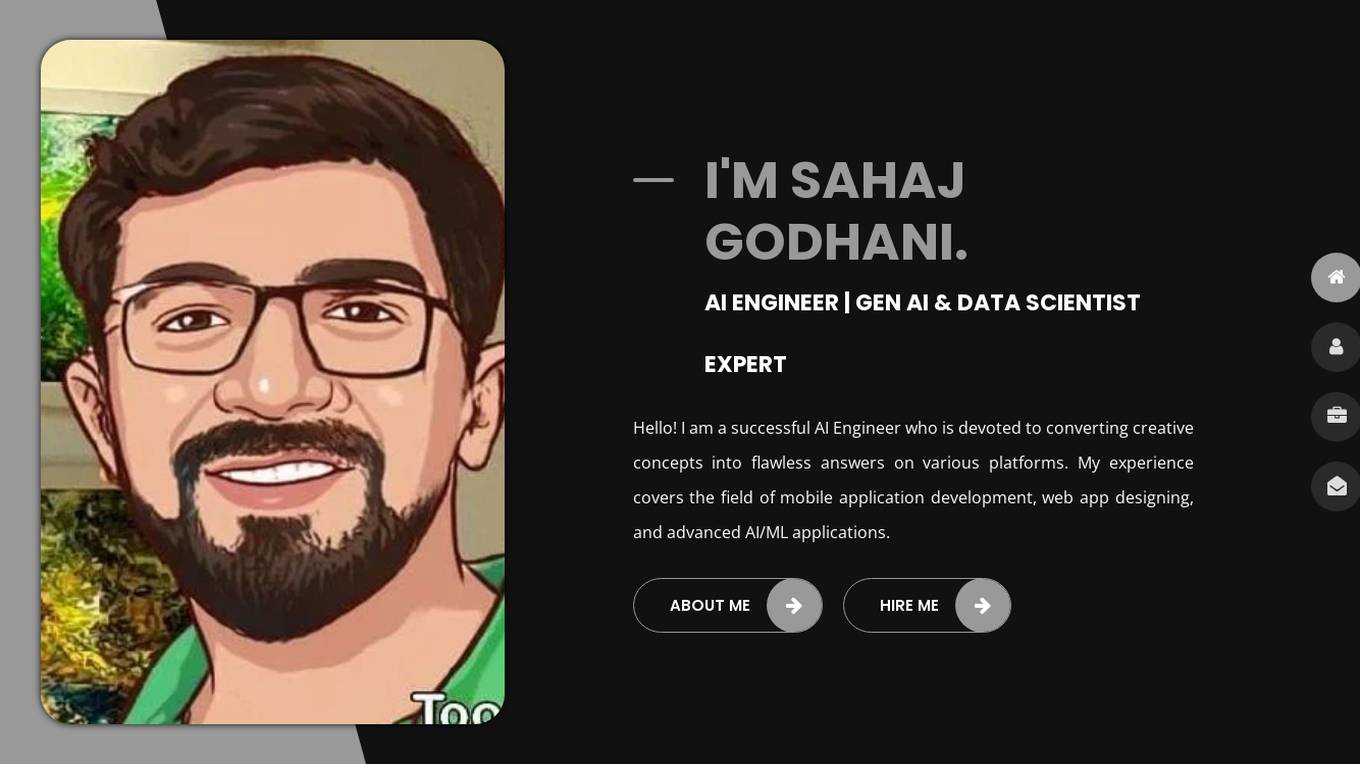
Sahaj Godhani
Sahaj Godhani is an AI tool created by a successful AI Engineer specializing in Gen AI and Data Science. The tool is designed to convert creative concepts into flawless answers across different platforms. Sahaj Godhani's expertise includes mobile application development, web app designing, and advanced AI/ML applications.
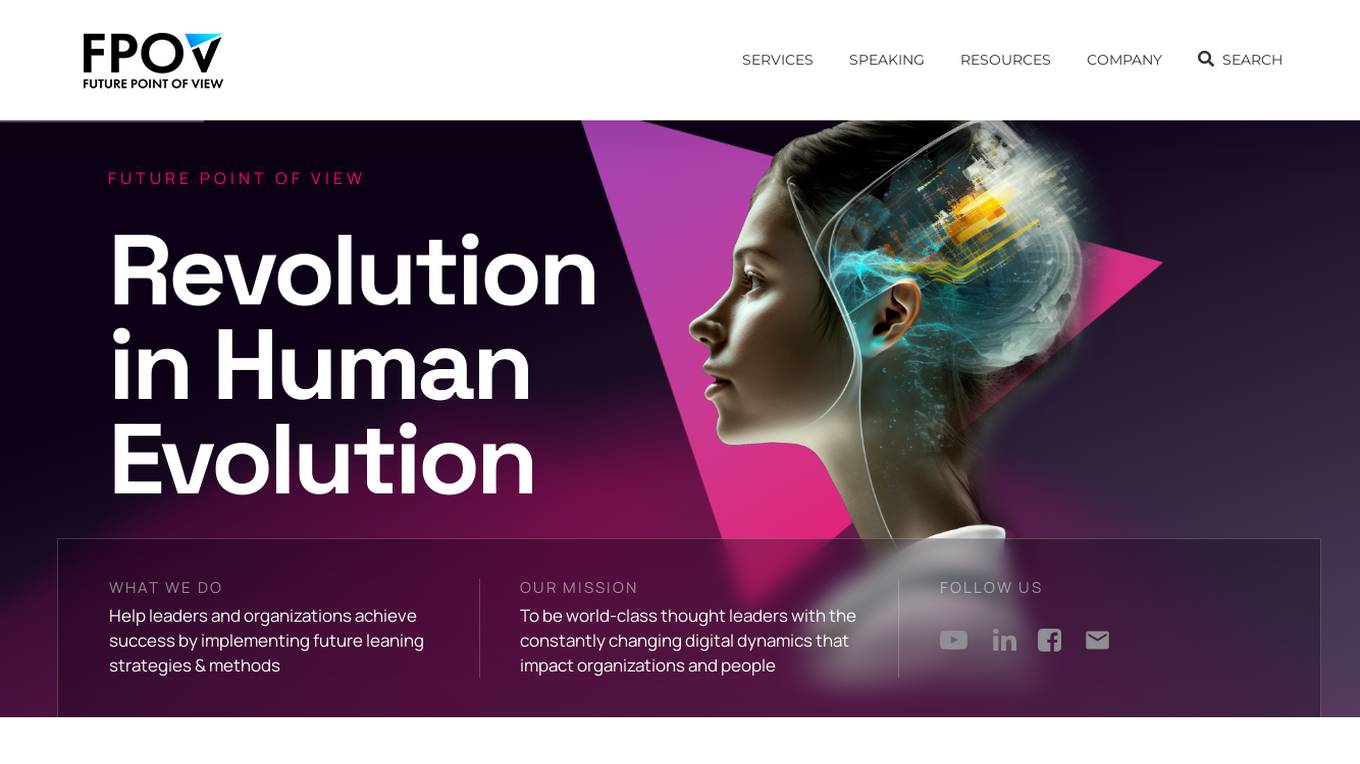
FPOV
FPOV is an AI application that helps businesses transform into digital leaders by providing services in leadership, technology operations, people/culture, and artificial intelligence. The application offers workshops, strategies, analysis, support, and advisory services to help organizations succeed in the digital age. FPOV aims to be world-class thought leaders in navigating the constantly changing digital dynamics that impact organizations and people.
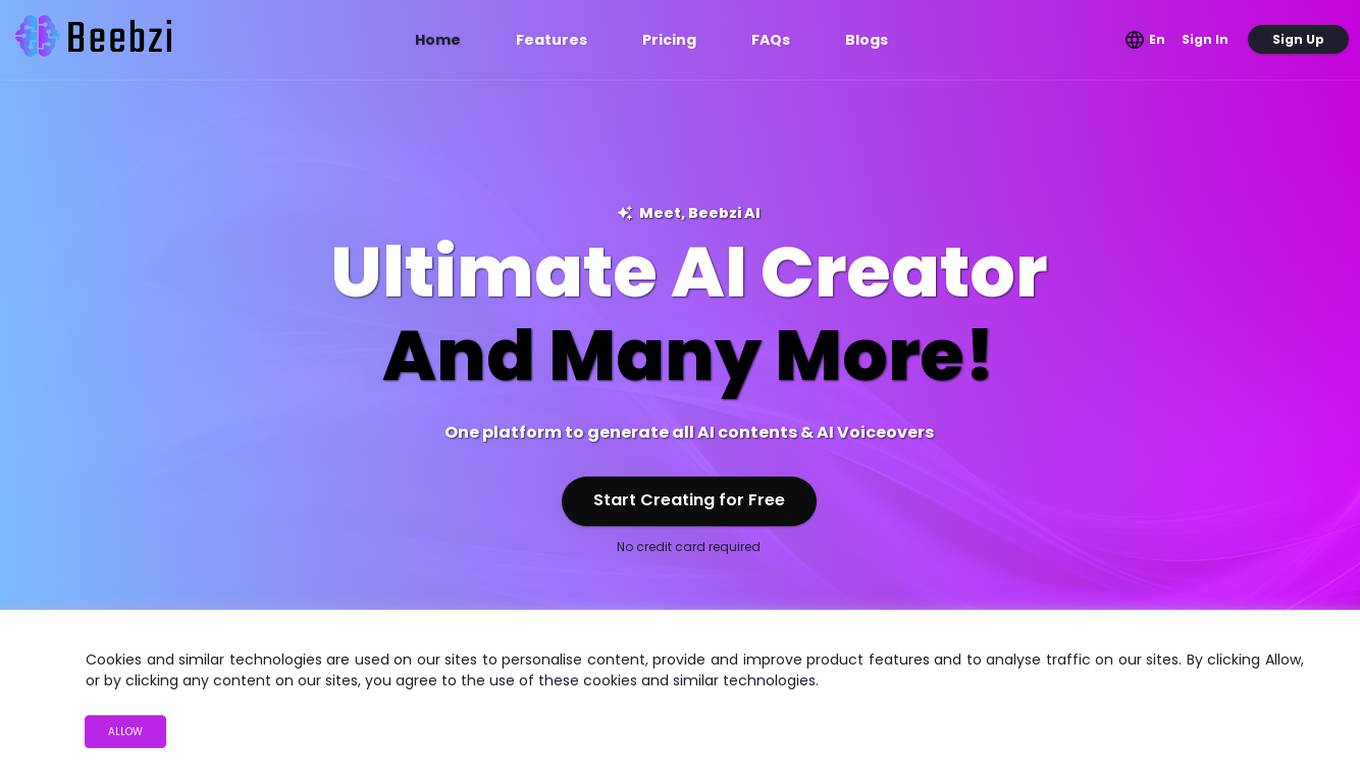
Beebzi.AI
Beebzi.AI is an all-in-one AI content creation platform that offers a wide array of tools for generating various types of content such as articles, blogs, emails, images, voiceovers, and more. The platform utilizes advanced AI technology and behavioral science to empower businesses and individuals in their marketing and sales endeavors. With features like AI Article Wizard, AI Room Designer, AI Landing Page Generator, and AI Code Generation, Beebzi.AI revolutionizes content creation by providing customizable templates, multiple language support, and real-time data insights. The platform also offers various subscription plans tailored for individual entrepreneurs, teams, and businesses, with flexible pricing models based on word count allocations. Beebzi.AI aims to streamline content creation processes, enhance productivity, and drive organic traffic through SEO-optimized content.
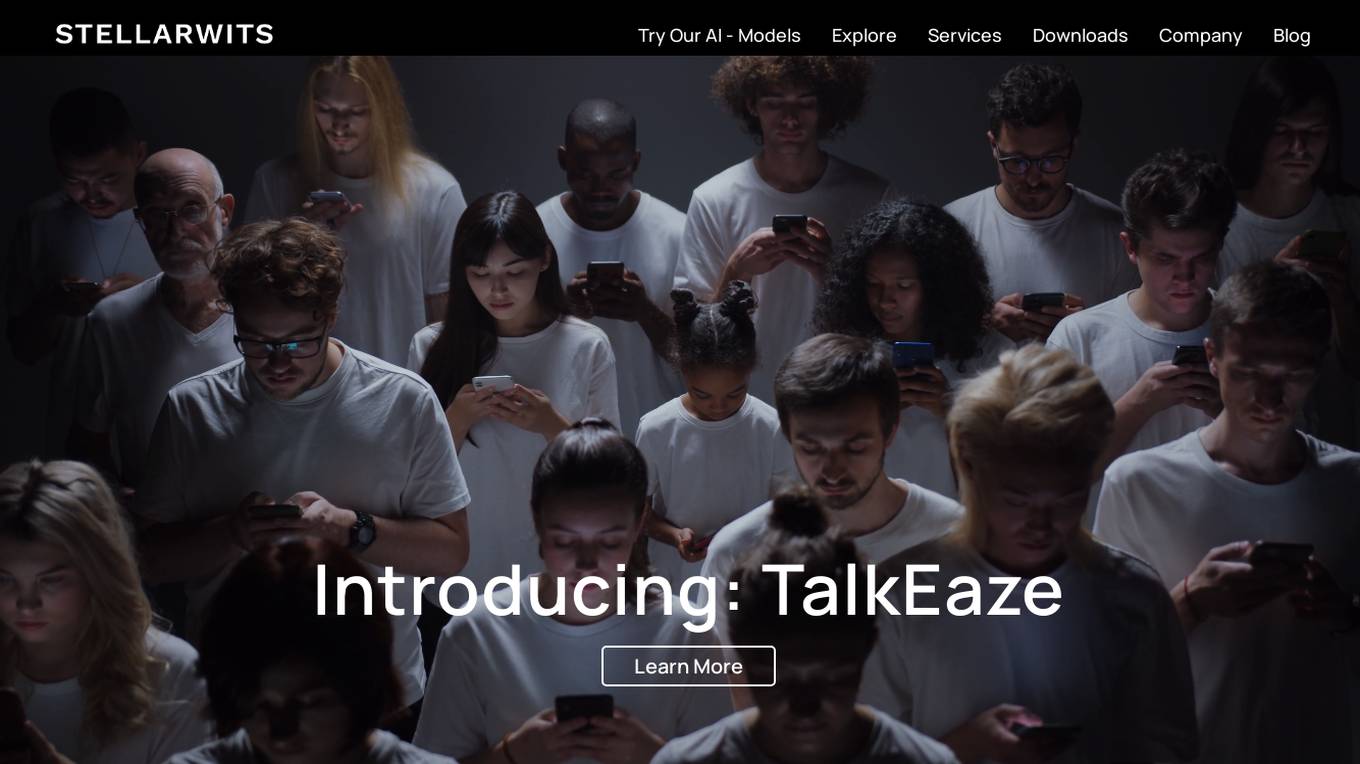
STELLARWITS
STELLARWITS is an AI solutions and software platform that empowers users to explore cutting-edge technology and innovation. The platform offers AI models with versatile capabilities, ranging from content generation to data analysis to problem-solving. Users can engage directly with the technology, experiencing its power in real-time. With a focus on transforming ideas into technology, STELLARWITS provides tailored solutions in software and AI development, delivering intelligent systems and machine learning models for innovative and efficient solutions. The platform also features a download hub with a curated selection of solutions to enhance the digital experience. Through blogs and company information, users can delve deeper into the narrative of STELLARWITS, exploring its mission, vision, and commitment to reshaping the tech landscape.

Palo Alto Networks
Palo Alto Networks is a cybersecurity company offering advanced security solutions powered by Precision AI to protect modern enterprises from cyber threats. The company provides network security, cloud security, and AI-driven security operations to defend against AI-generated threats in real time. Palo Alto Networks aims to simplify security and achieve better security outcomes through platformization, intelligence-driven expertise, and proactive monitoring of sophisticated threats.
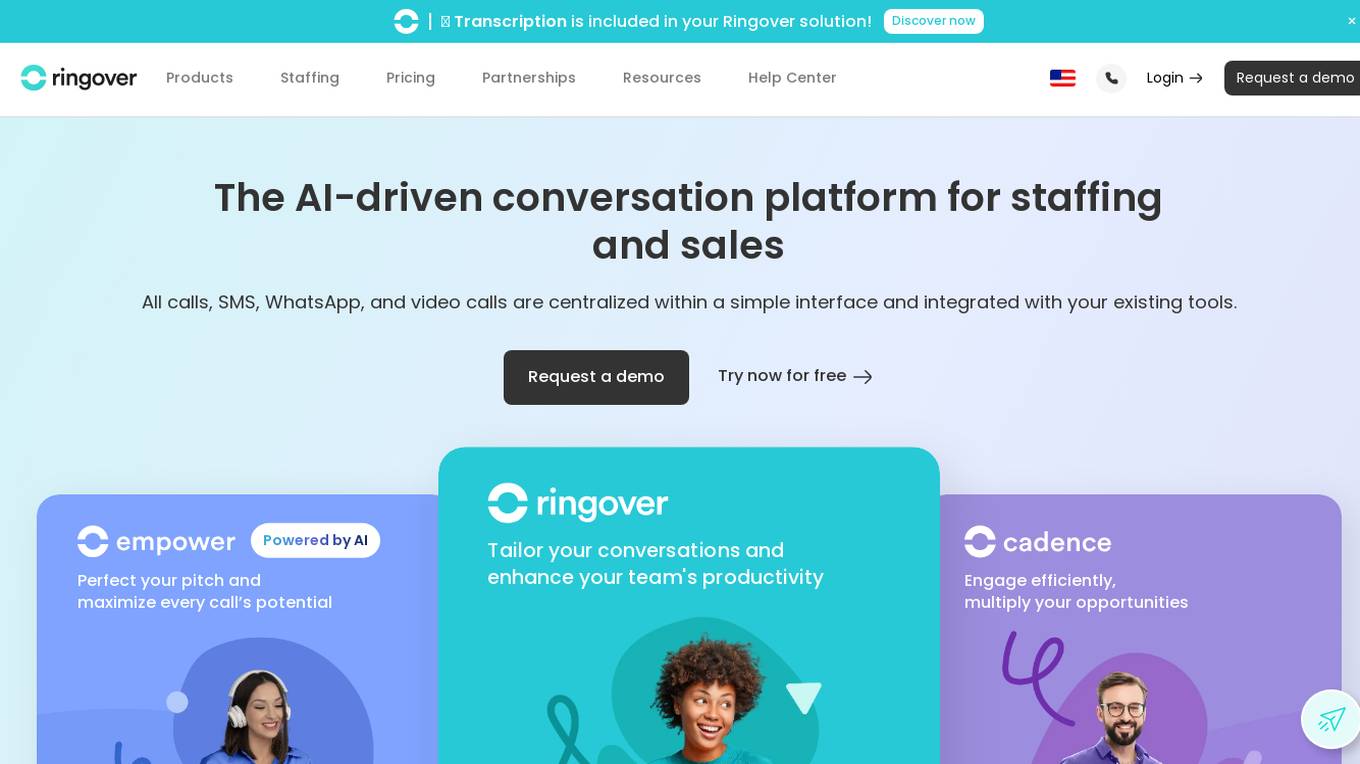
Ringover
Ringover is an AI-driven conversation platform designed for staffing and sales teams. It offers features such as transcription and call summaries, mood analysis, cloud telephony, multichannel communications, sales prospecting automations, app marketplace integration, and more. The platform aims to centralize all communication channels within a simple interface, empowering users to enhance productivity and streamline conversations with clients and prospects. Ringover also provides advanced analytics, automation, and coaching to boost the productivity of recruiting and sales teams. With seamless integration with various business tools, Ringover offers a comprehensive solution for businesses looking to optimize their communication strategies.

RankSense
RankSense is an AI-powered SEO tool designed to help users optimize their website's search engine performance efficiently. Created by Hamlet Batista, RankSense enables users to implement immediate changes to SEO meta tags, structured data, and redirects at scale. By leveraging Cloudflare and Google Sheets, users can make SEO changes on thousands of pages with just a few clicks, without the need for developers. The tool also offers features such as monitoring SEO changes, discovering pages that need optimization, and automatically improving search snippets using artificial intelligence.
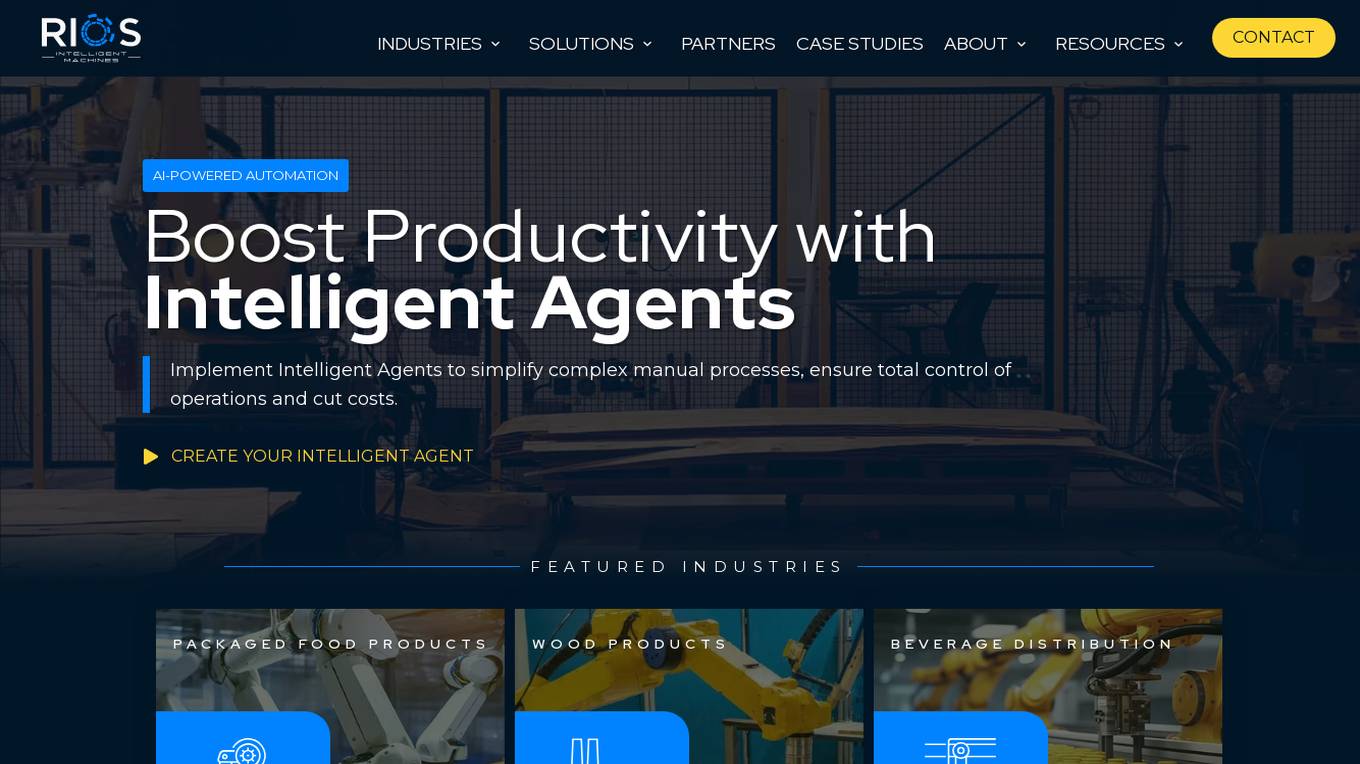
RIOS
RIOS is an AI-powered automation tool that revolutionizes American manufacturing by leveraging robotics and AI technology. It offers flexible, reliable, and efficient robotic automation solutions that integrate seamlessly into existing production lines, helping businesses improve productivity, reduce operating expenses, and minimize risks. RIOS provides intelligent agents, machine tending, food handling, and end-of-line packout services, powered by AI and robotics. The tool aims to simplify complex manual processes, ensure total control of operations, and cut costs for businesses facing production inefficiencies and challenges in labor productivity.
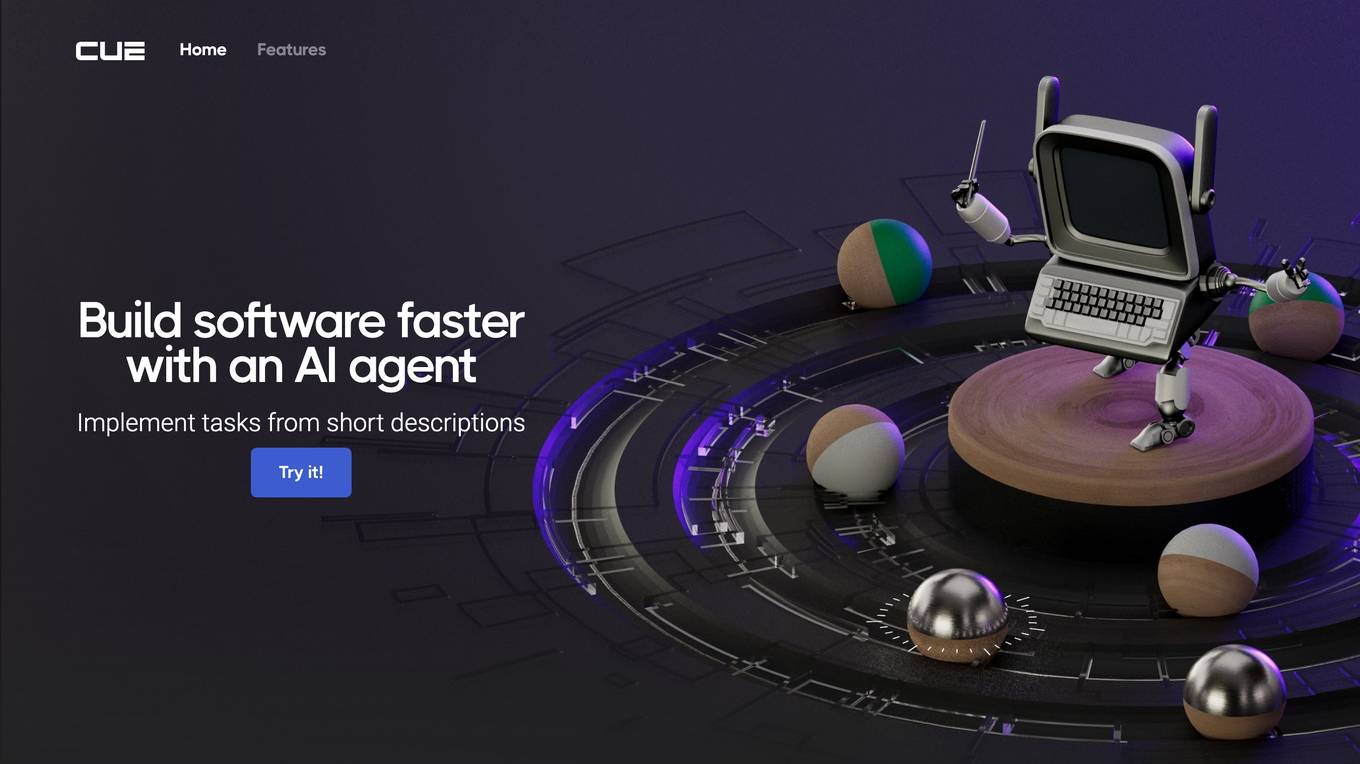
Cue AI
Cue AI is an AI research lab dedicated to enhancing the capabilities of cutting-edge models. The lab is committed to pushing the boundaries of AI technology and innovation. While the website currently has limited information, it serves as a platform for sharing updates and developments in the field of artificial intelligence. For inquiries or collaborations, users can reach out via email at [email protected].
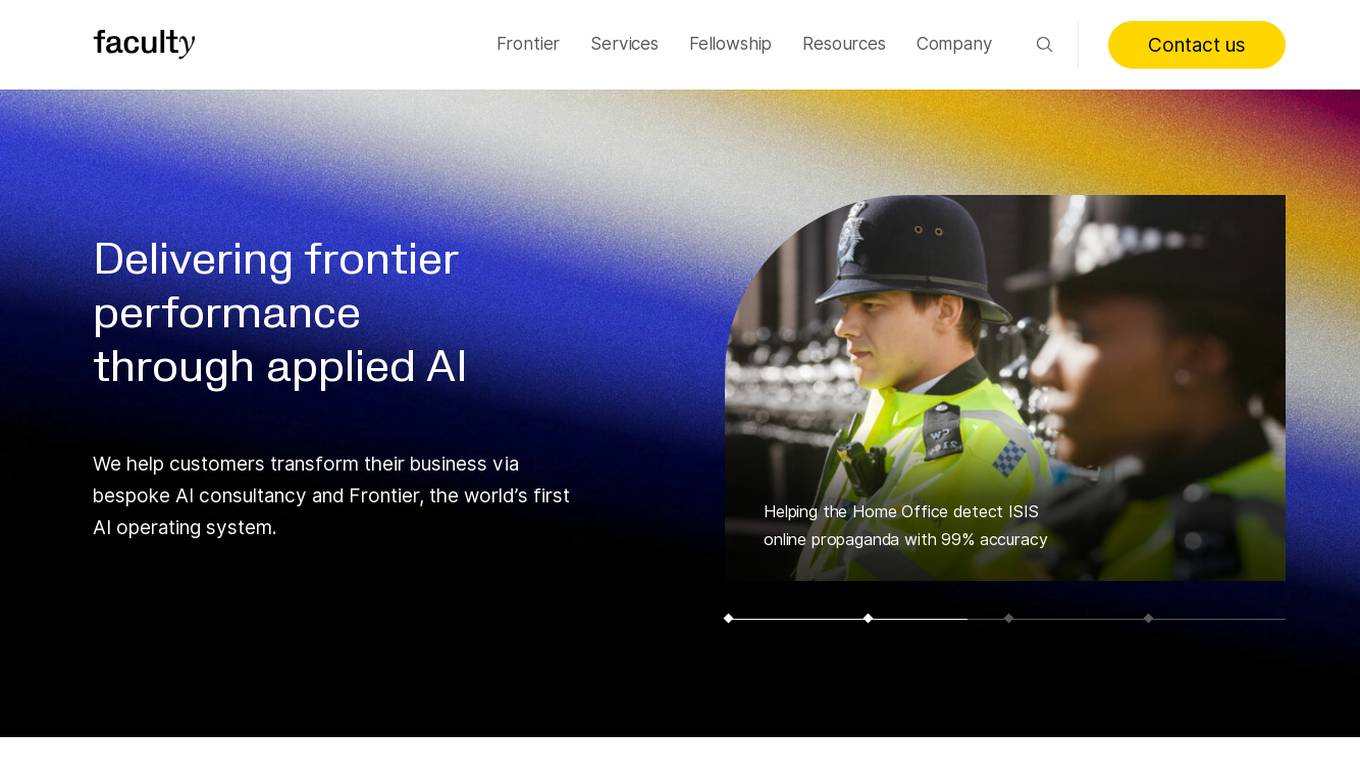
Faculty AI
Faculty AI is a leading applied AI consultancy and technology provider, specializing in helping customers transform their businesses through bespoke AI consultancy and Frontier, the world's first AI operating system. They offer services such as AI consultancy, generative AI solutions, and AI services tailored to various industries. Faculty AI is known for its expertise in AI governance and safety, as well as its partnerships with top AI platforms like OpenAI, AWS, and Microsoft.

Modulos
Modulos is a Responsible AI Platform that integrates risk management, data science, legal compliance, and governance principles to ensure responsible innovation and adherence to industry standards. It offers a comprehensive solution for organizations to effectively manage AI risks and regulations, streamline AI governance, and achieve relevant certifications faster. With a focus on compliance by design, Modulos helps organizations implement robust AI governance frameworks, execute real use cases, and integrate essential governance and compliance checks throughout the AI life cycle.
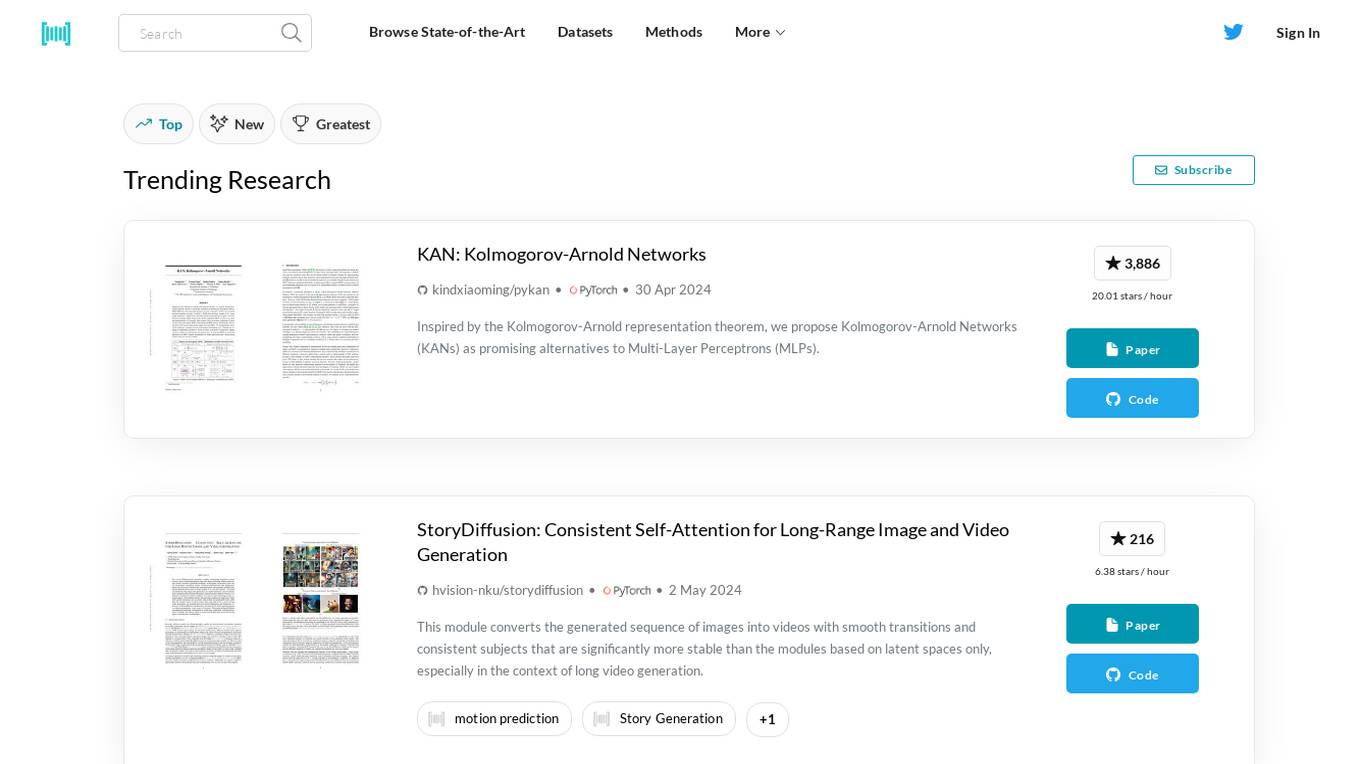
Papers With Code
Papers With Code is an AI tool that provides access to the latest research papers in the field of Machine Learning, along with corresponding code implementations. It offers a platform for researchers and enthusiasts to stay updated on state-of-the-art datasets, methods, and trends in the ML domain. Users can explore a wide range of topics such as language modeling, image generation, virtual try-on, and more through the collection of papers and code available on the website.

Lifestyle Medicine WORKS™ PRO AI
Lifestyle Medicine WORKS™ PRO AI is a comprehensive AI-powered platform designed for physicians, healthcare providers, and clinics worldwide. It offers tools and courses to master evidence-based Lifestyle Medicine, reduce team burnout, save time, create new revenue opportunities, and improve chronic diseases patient health outcomes. The platform includes 6 AI Assistants, a 101 Course, business strategies, certification, and more. Lifestyle Medicine WORKS™ PRO AI aims to empower healthcare professionals to seamlessly integrate evidence-based Lifestyle Medicine into their practice and help patients prevent, reduce, and even reverse chronic symptoms.
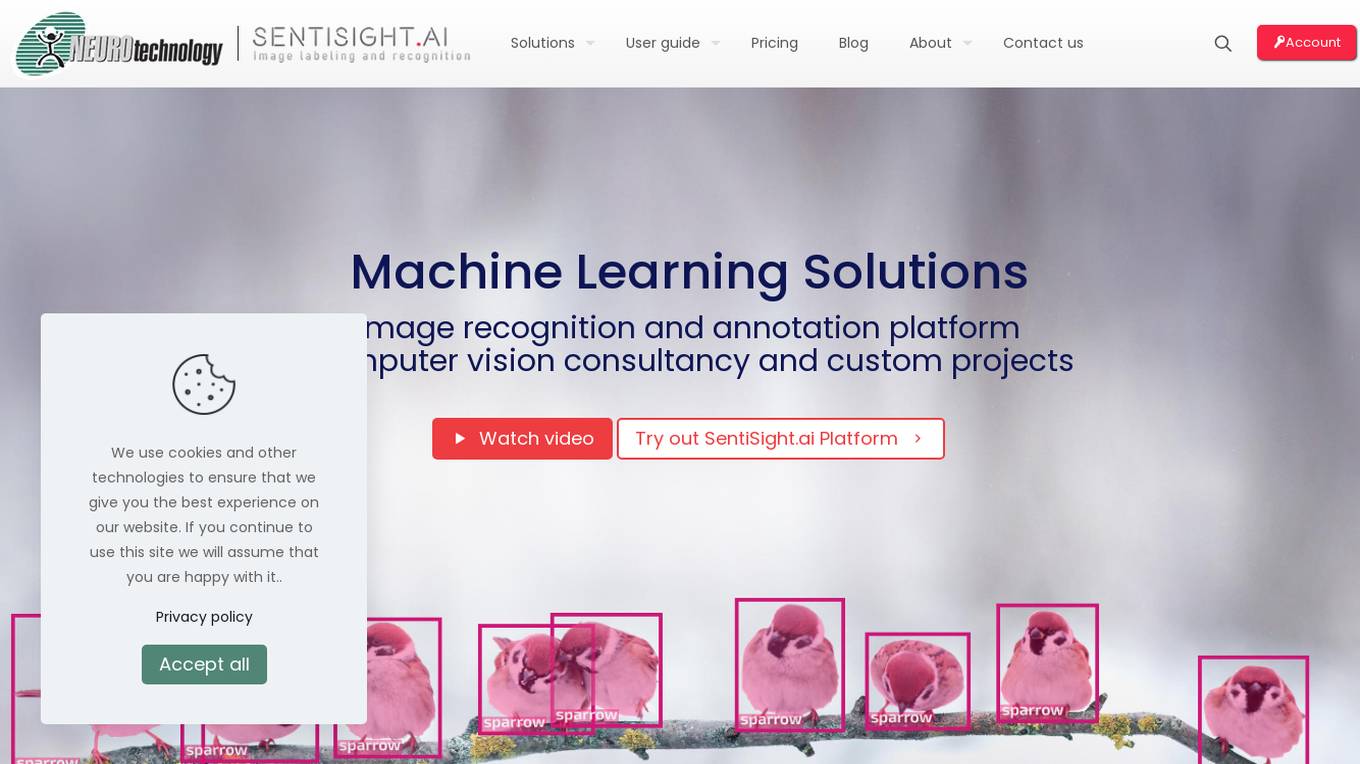
SentiSight.ai
SentiSight.ai is a machine learning platform for image recognition solutions, offering services such as object detection, image segmentation, image classification, image similarity search, image annotation, computer vision consulting, and intelligent automation consulting. Users can access pre-trained models, background removal, NSFW detection, text recognition, and image recognition API. The platform provides tools for image labeling, project management, and training tutorials for various image recognition models. SentiSight.ai aims to streamline the image annotation process, empower users to build and train their own models, and deploy them for online or offline use.

Demand Spring
Demand Spring is a strategic AI implementation platform for B2B marketing leaders. They offer services such as AI advisory for revenue acceleration, AI activation & growth services, training & enablement for AI-first mindset teams, and marketing automation & AI workflow agents. The platform helps B2B marketing leaders leverage AI and marketing automation platforms to transform operations, increase productivity, and create personalized customer engagement. Demand Spring aims to make AI and automation accessible, actionable, and impactful for their clients.
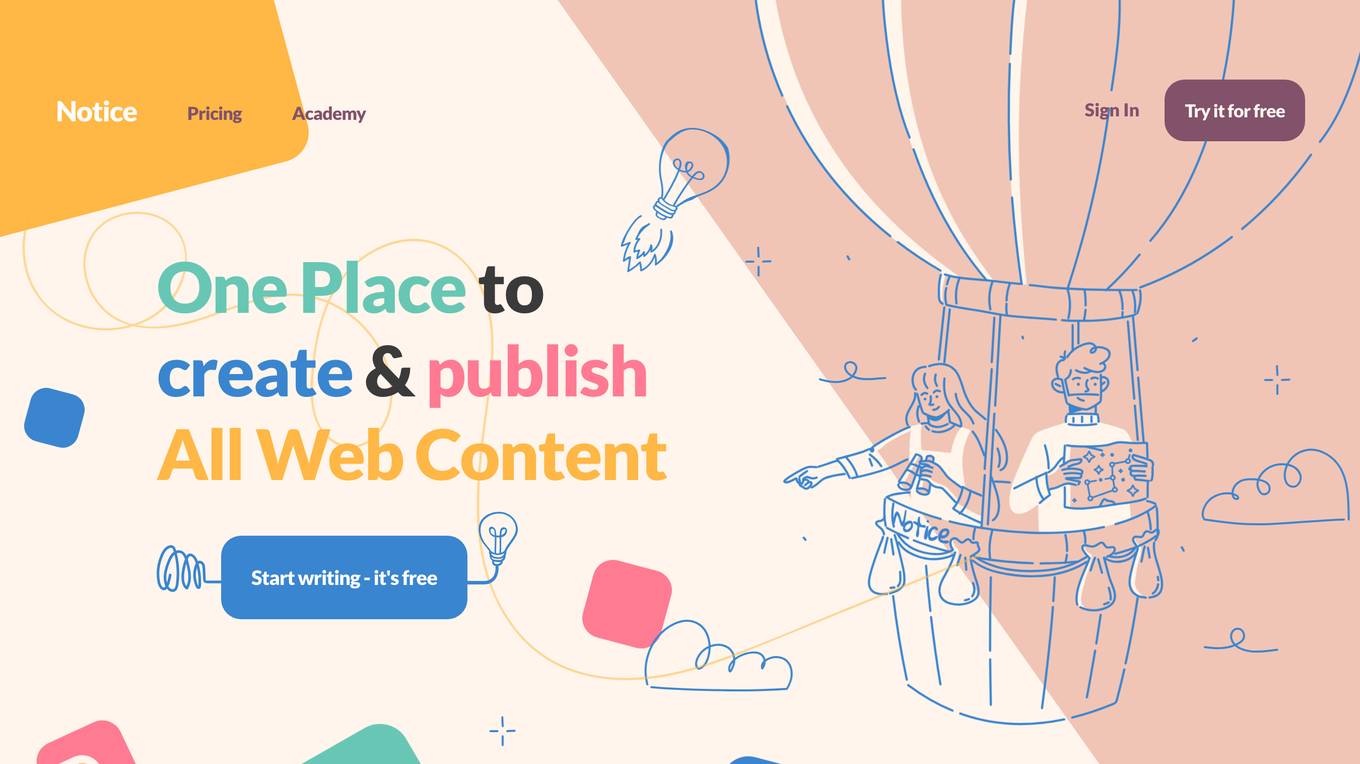
Notice
Notice is an AI-powered platform that allows users to create blogs, documents, portfolios, and more with ease. It offers collaborative editing, auto-translation in over 100 languages, and an AI writing assistant. Users can embed their content anywhere on the web using ready-to-use templates that are SEO-friendly. Notice simplifies content creation and publishing, making it accessible to users of all skill levels.
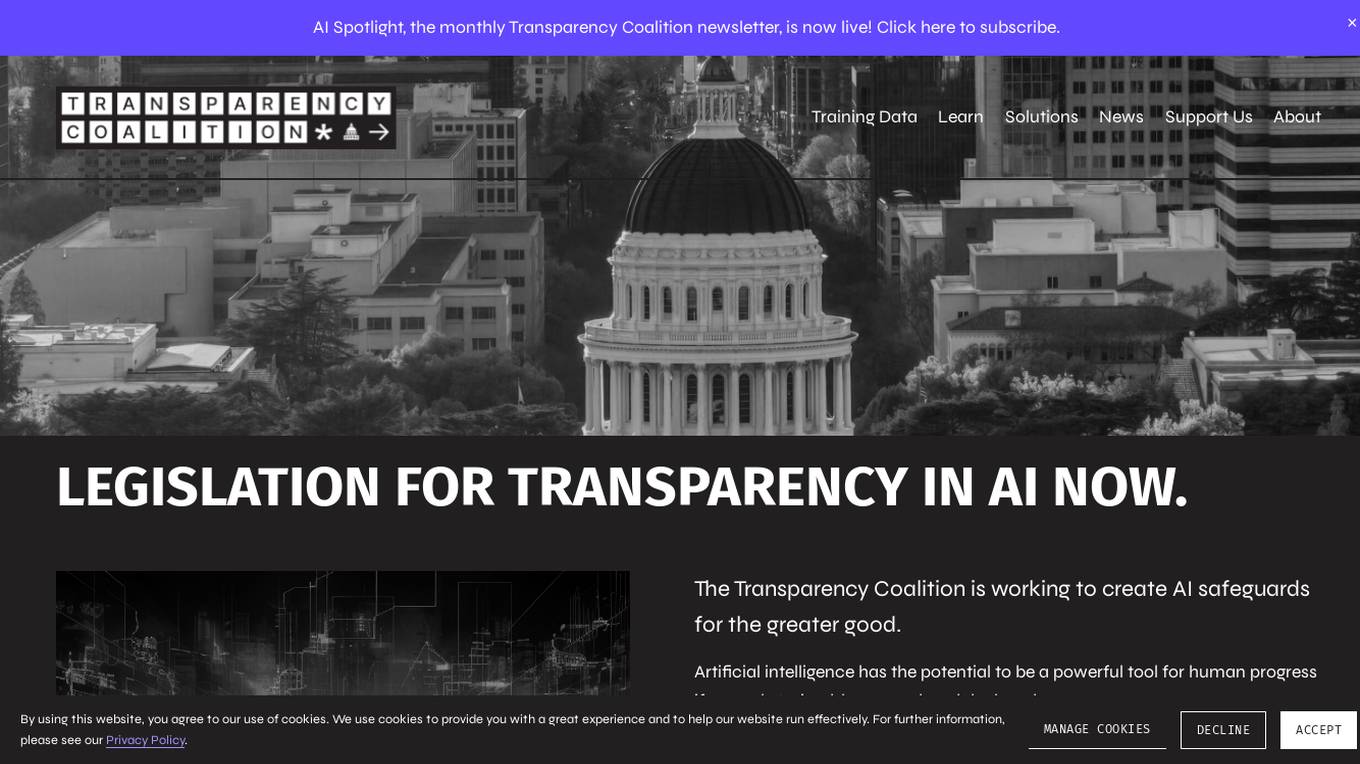
Transparency Coalition
The Transparency Coalition is a platform dedicated to advocating for legislation and transparency in the field of artificial intelligence. It aims to create AI safeguards for the greater good by focusing on training data, accountability, and ethical practices in AI development and deployment. The platform emphasizes the importance of regulating training data to prevent misuse and harm caused by AI systems. Through advocacy and education, the Transparency Coalition seeks to promote responsible AI innovation and protect personal privacy.
0 - Open Source AI Tools
20 - OpenAI Gpts

이미지 생성기
이 이미지 생성기는 텍스트 설명에서 이미지를 생성하도록 설계된 고급 AI 프로그램입니다. 간단한 텍스트만 입력하면 창의적인 비주얼을 얻을 수 있어 아티스트, 디자이너 또는 아이디어를 시각적으로 구현하고자 하는 모든 사람에게 유용합니다.
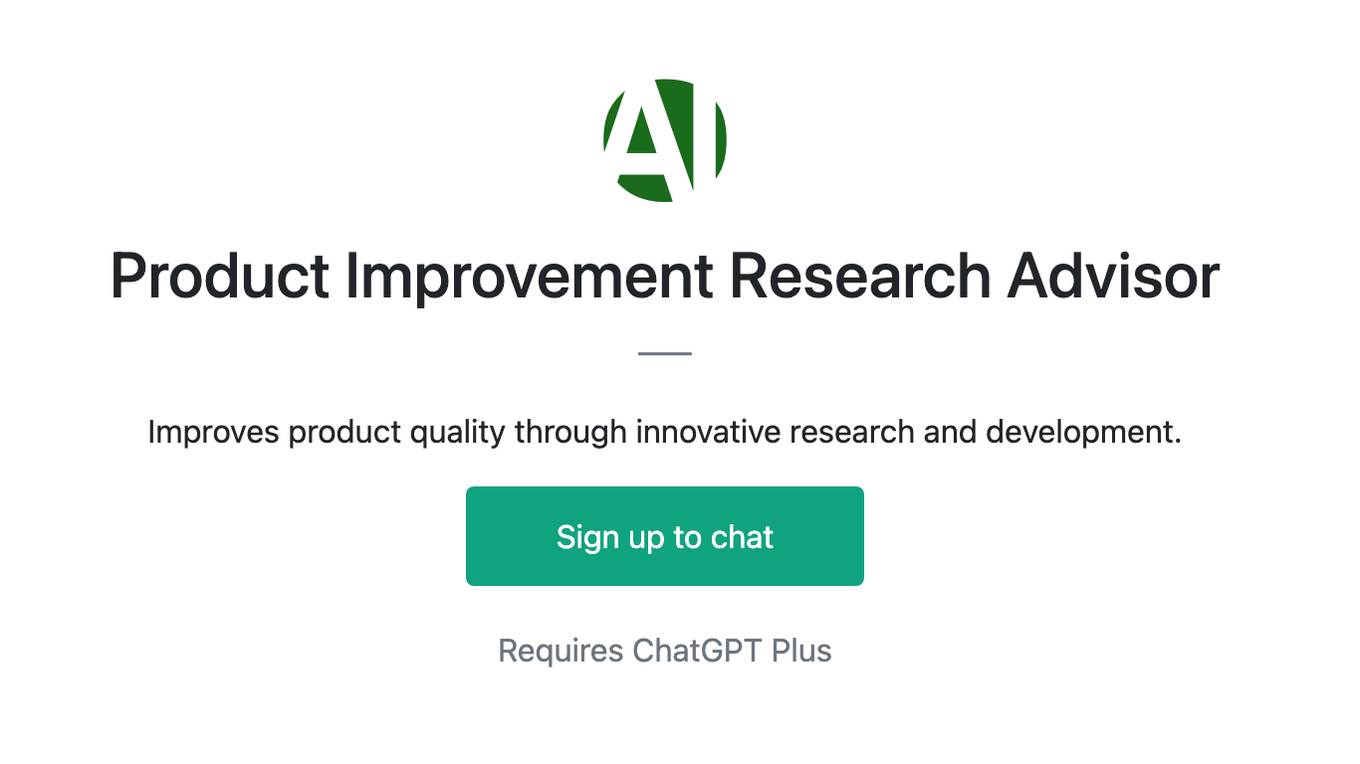
Product Improvement Research Advisor
Improves product quality through innovative research and development.
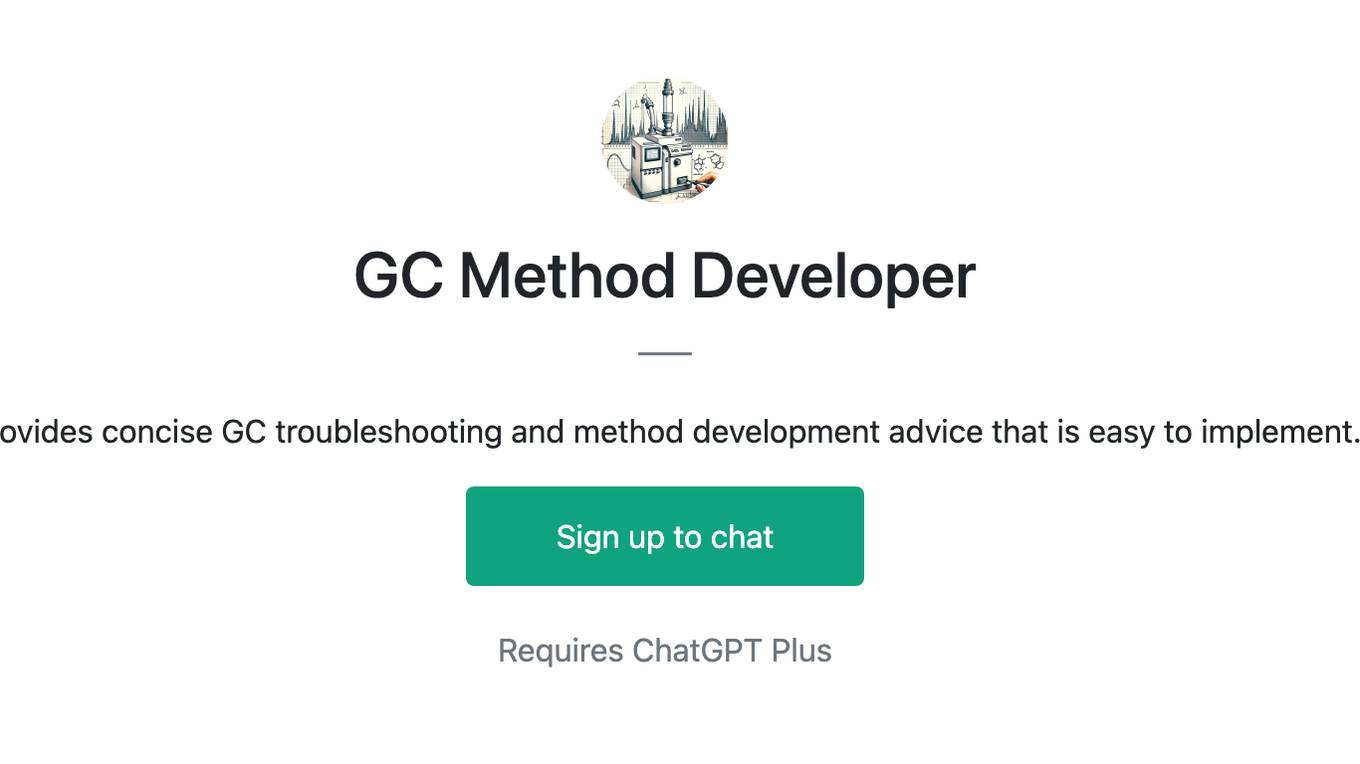
GC Method Developer
Provides concise GC troubleshooting and method development advice that is easy to implement.

Conversion Priority Advisor
Assists in enhancing e-commerce sites for better conversions with tailored, easy-to-implement advice.

👑 Data Privacy for Insurance Companies 👑
Insurance providers collect and process personal health, financial, and property information, making it crucial to implement comprehensive data protection strategies.
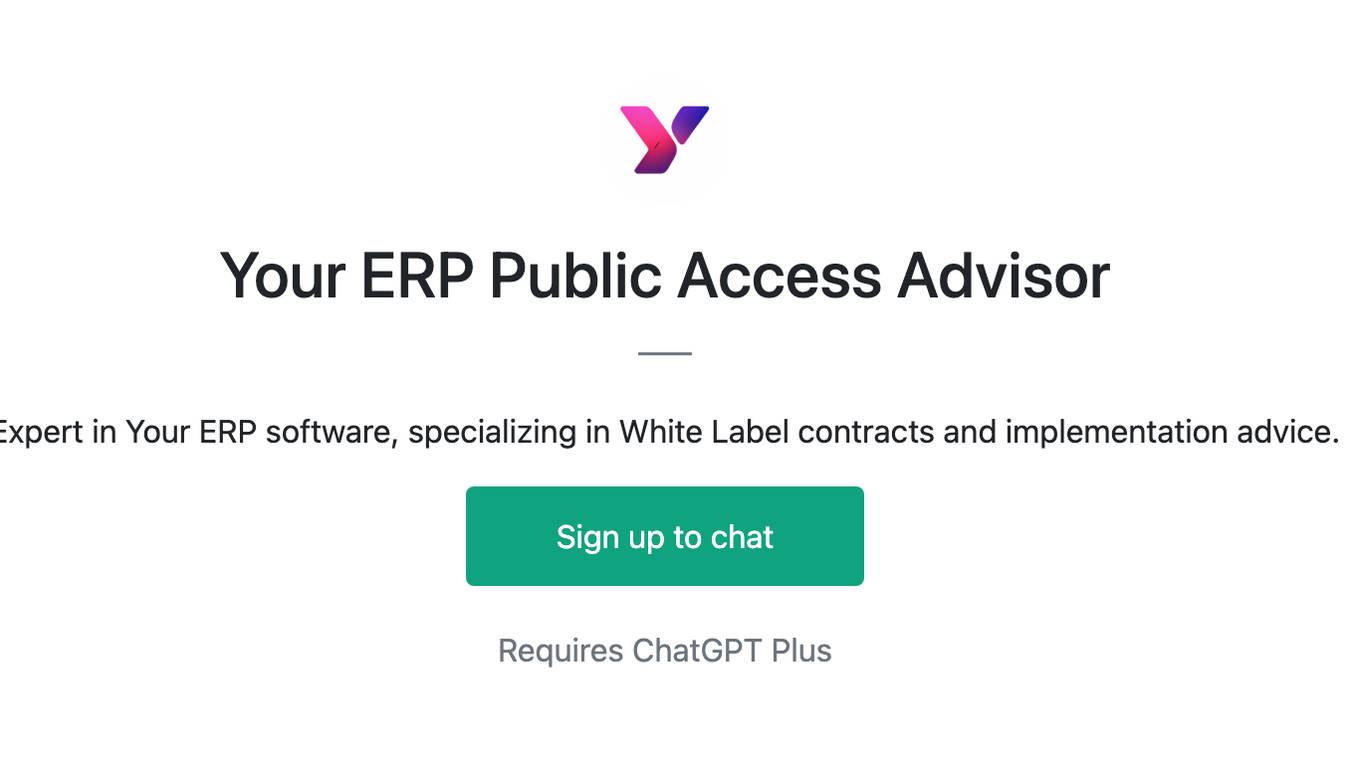
Your ERP Public Access Advisor
Expert in Your ERP software, specializing in White Label contracts and implementation advice.
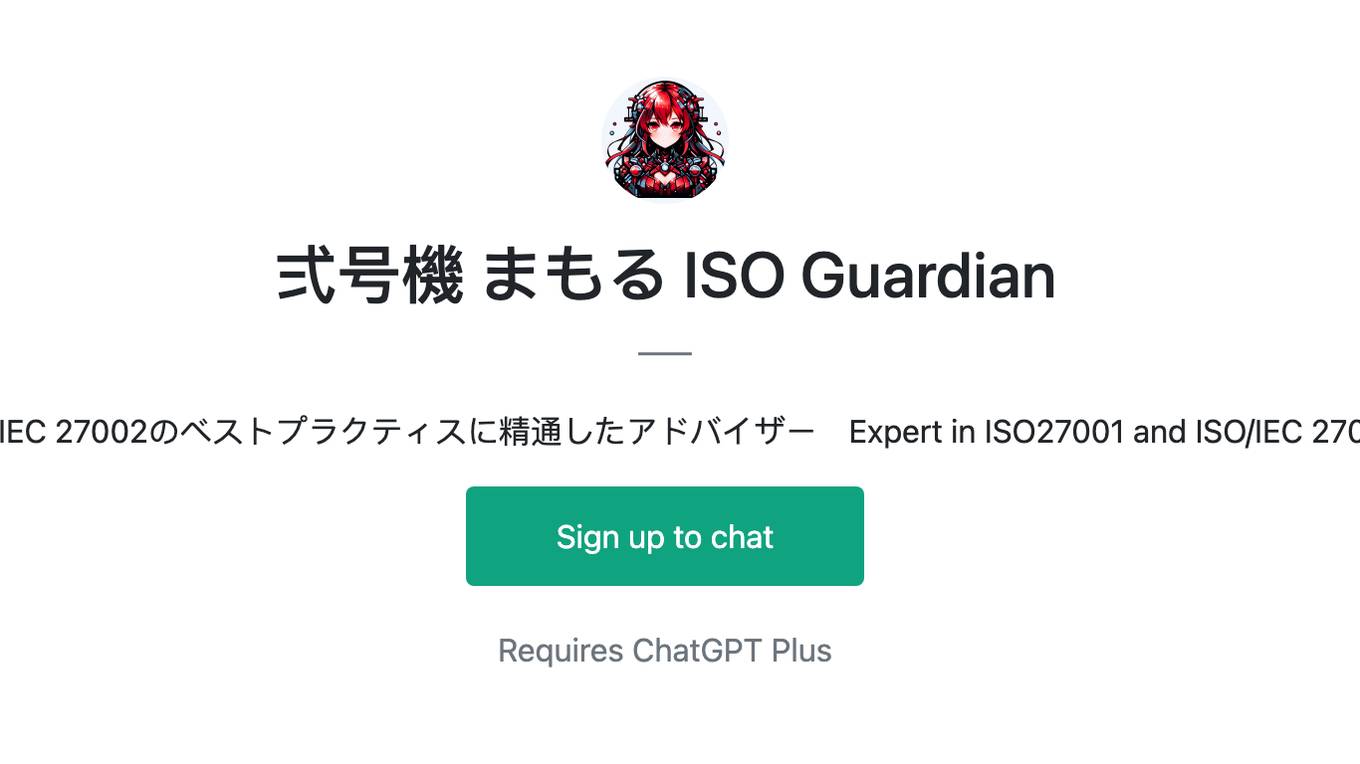
弍号機 まもる ISO Guardian
ISO27001およびISO/IEC 27002のベストプラクティスに精通したアドバイザー Expert in ISO27001 and ISO/IEC 27002 best practices.
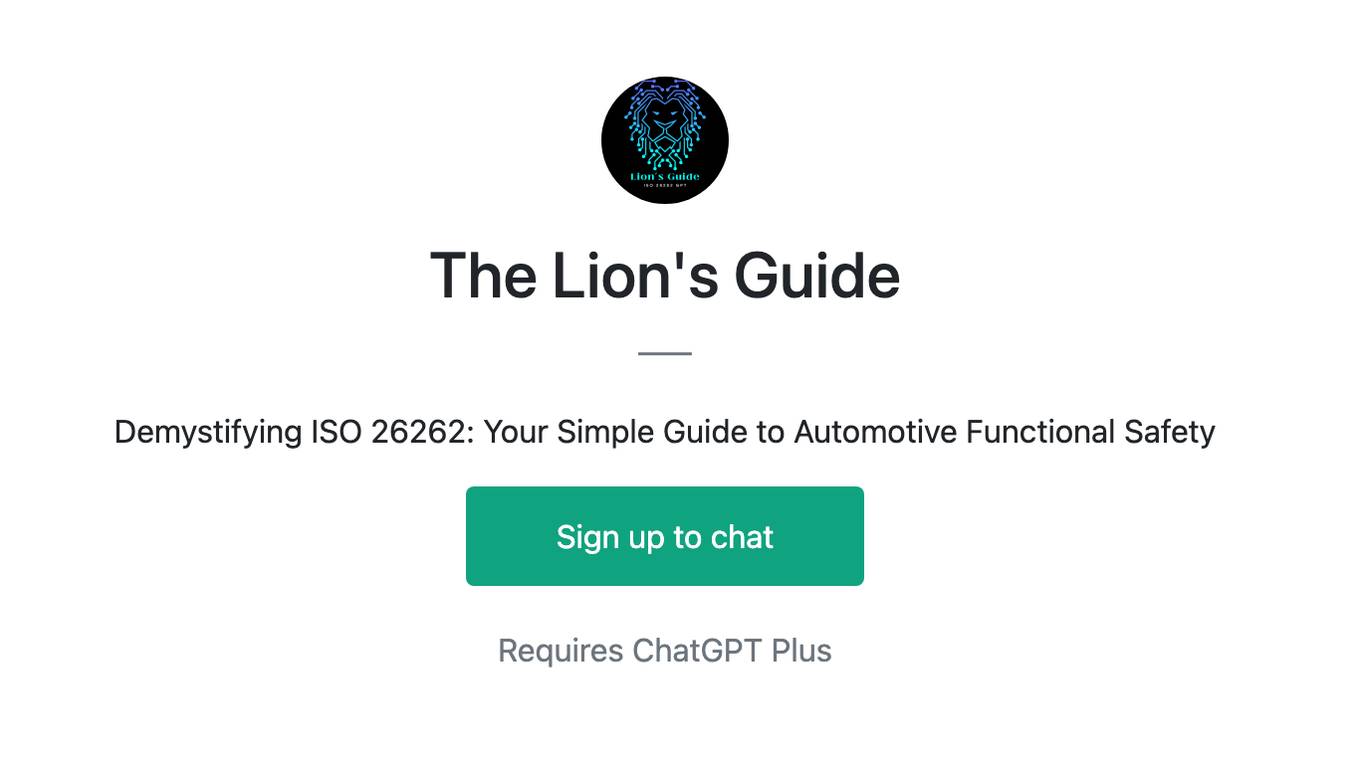
The Lion's Guide
Demystifying ISO 26262: Your Simple Guide to Automotive Functional Safety
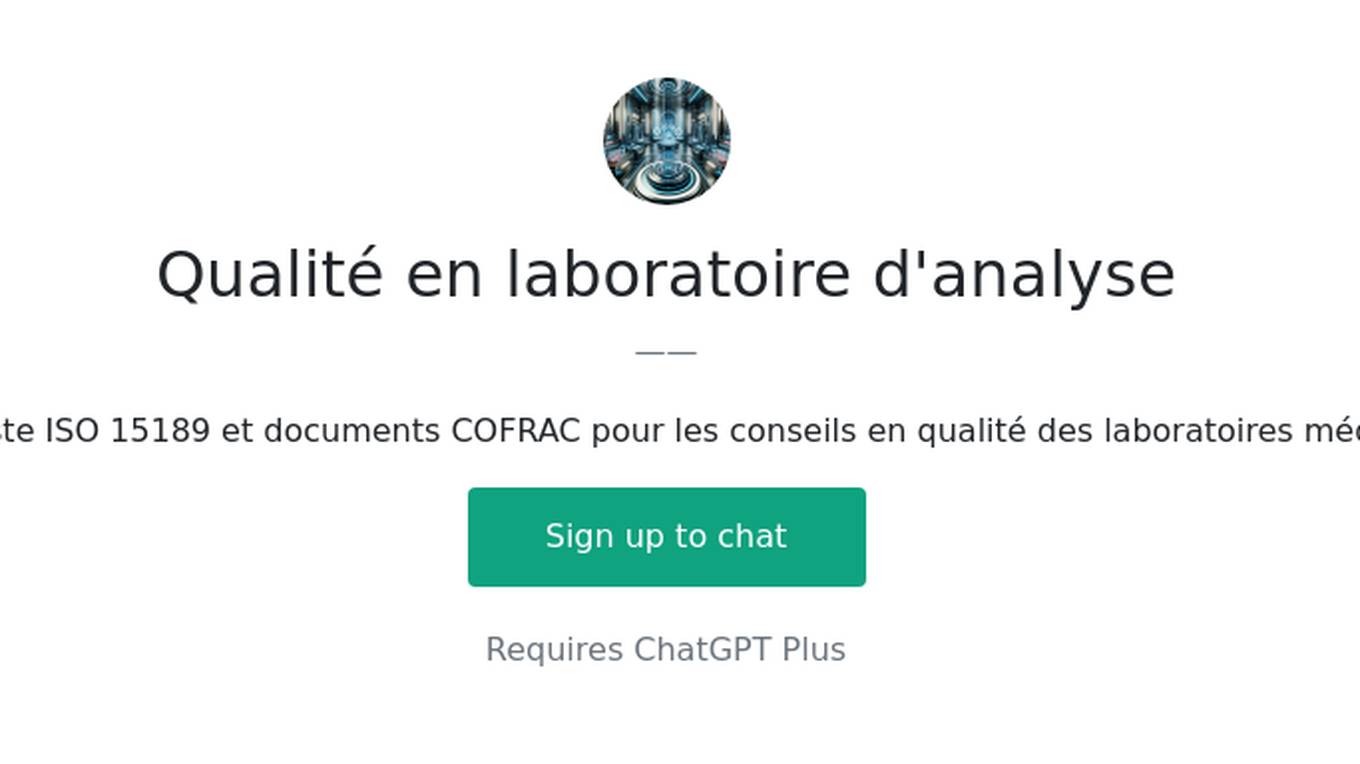
Qualité en laboratoire d'analyse
Spécialiste ISO 15189 et documents COFRAC pour les conseils en qualité des laboratoires médicaux.
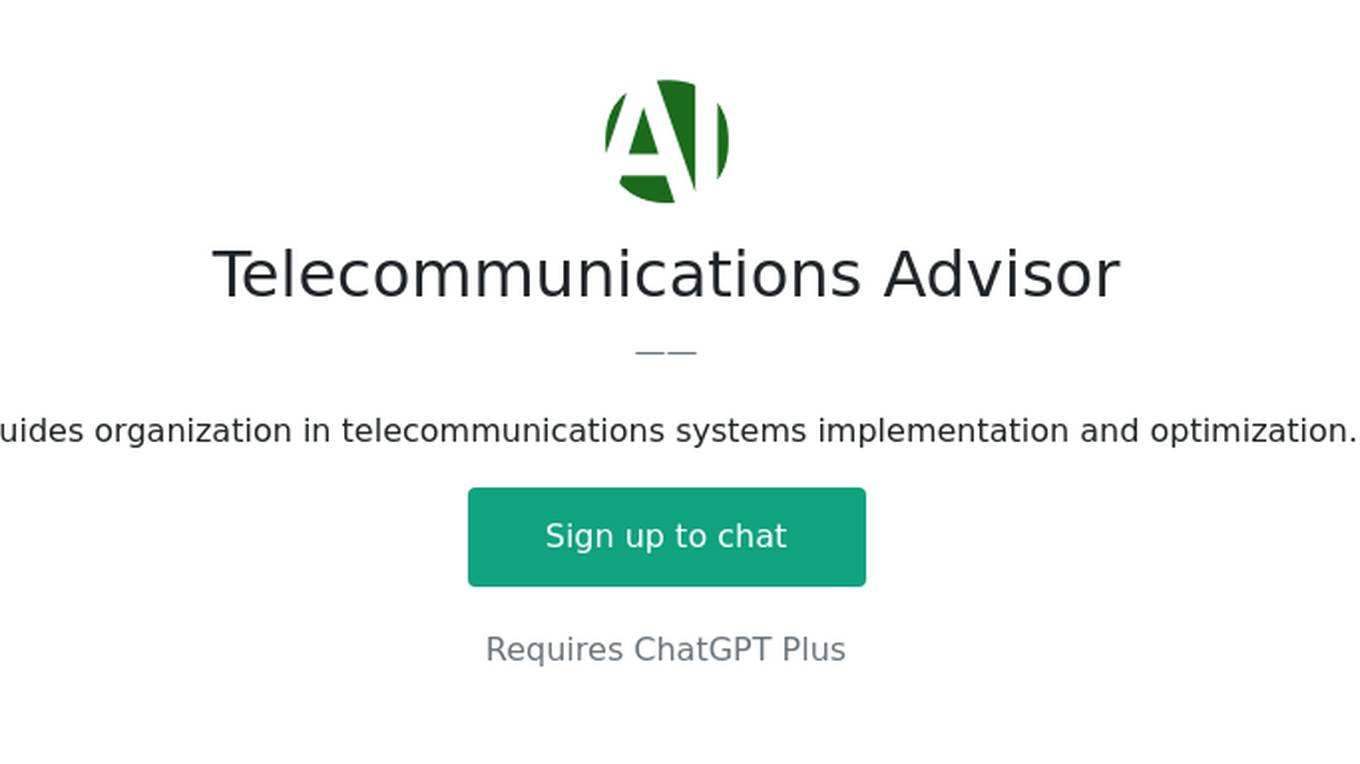
Telecommunications Advisor
Guides organization in telecommunications systems implementation and optimization.
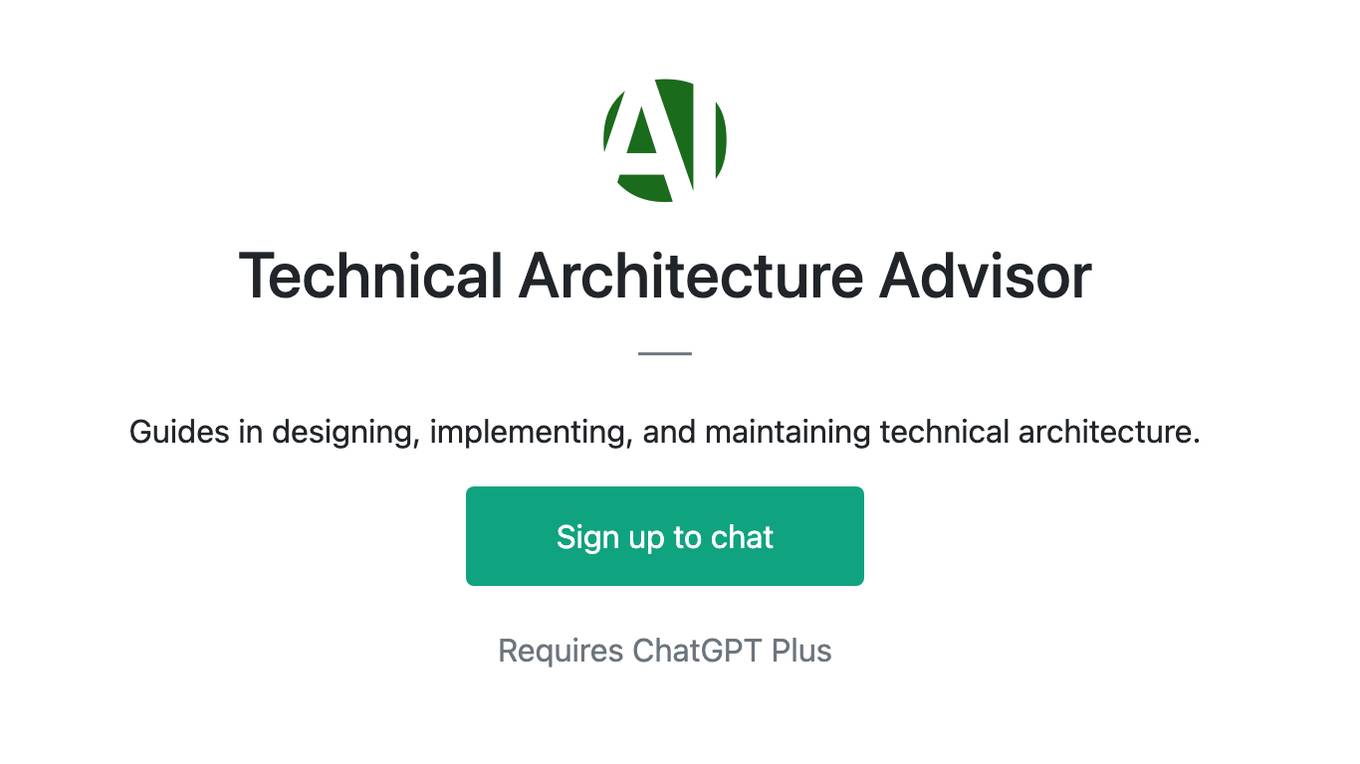
Technical Architecture Advisor
Guides in designing, implementing, and maintaining technical architecture.
